It was great to be back at Wisdom 2.0 again, which returned to San Francisco. An annual event we attended for years, this year’s event ran from April 27-29, 2023 at the Yerba Buena Center. Some of this year’s highlighted speakers include Yung Pueblo, Gabor Maté, Byron Katie, Jack Kornfield, Dr. Lyla June Johnston, Rhonda Magee, Alex Senegal, Mohammed Mohammed, Chip Conley, OpenAI/ChatGPT’s Sam Altman, MAPS founder Rick Doblin and many more.
It’s always great to be in the presence of Spirit Rock’s Jack Kornfield who is part of the Wisdom 2.0 team. An American writer and teacher in the Vipassana movement in American Theravada Buddhism, he trained as a Buddhist monk in Thailand, Burma and India, and has taught mindfulness meditation worldwide since 1974. He moderated and was part of a few panel discussions on the main stage with lead producer and host of the event, Soren Gordhamer. (below)
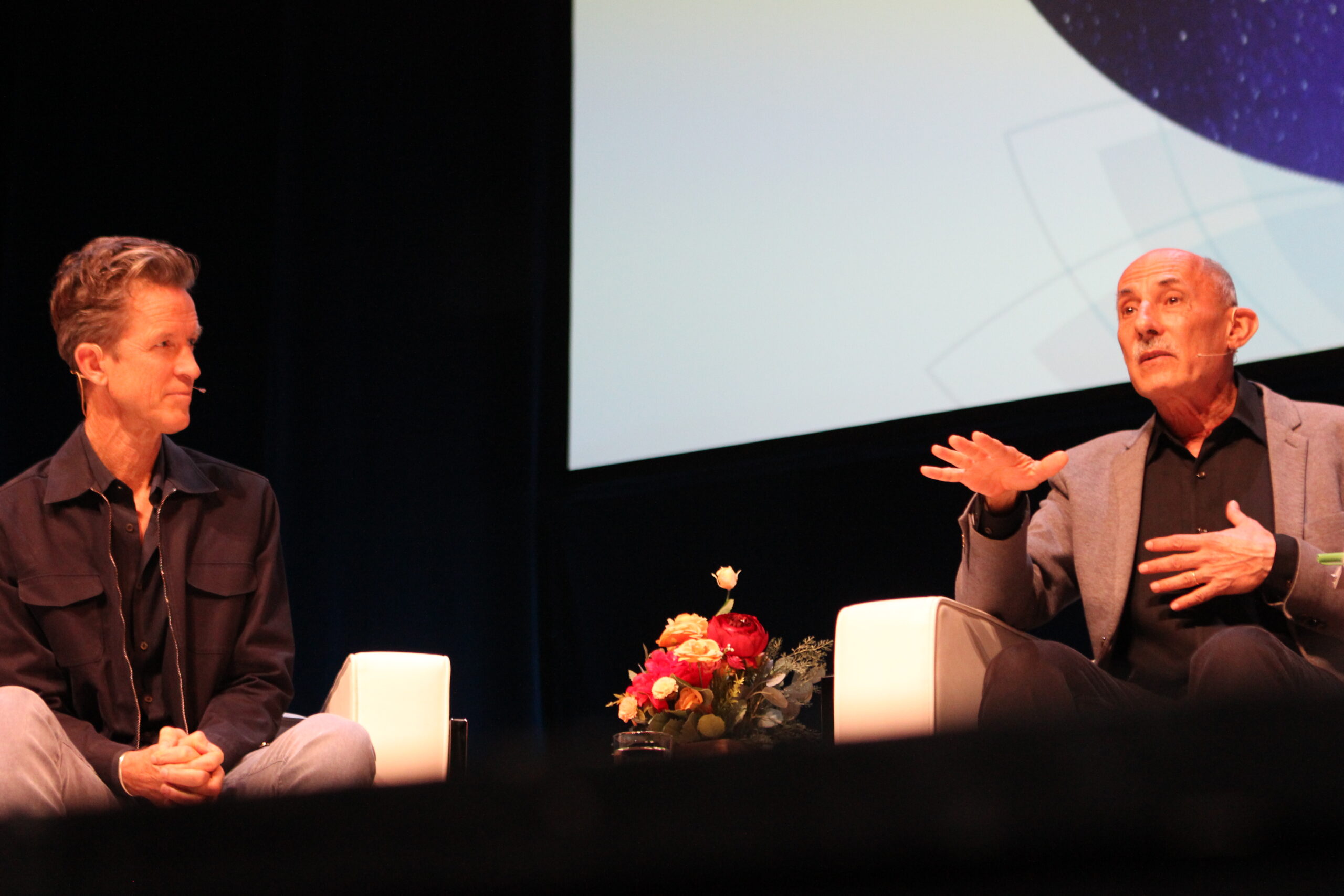
Soren Gordhamer and Jack Kornfield on the main stage
Soren also interviewed Jennifer Siebel Newsom, who mostly spoke of gender equality. She made several valid and compelling points as a mother, as a mentor and as an entrepreneur. On the other side of Covid, many people had more time to spend with their families and Jennifer confirmed what they’ve learned through research, including the fact that when men spend time with their children, there is less depression. Other questions presented included: What about unworthiness? How do we deal with it? What impact is technology having on our children?
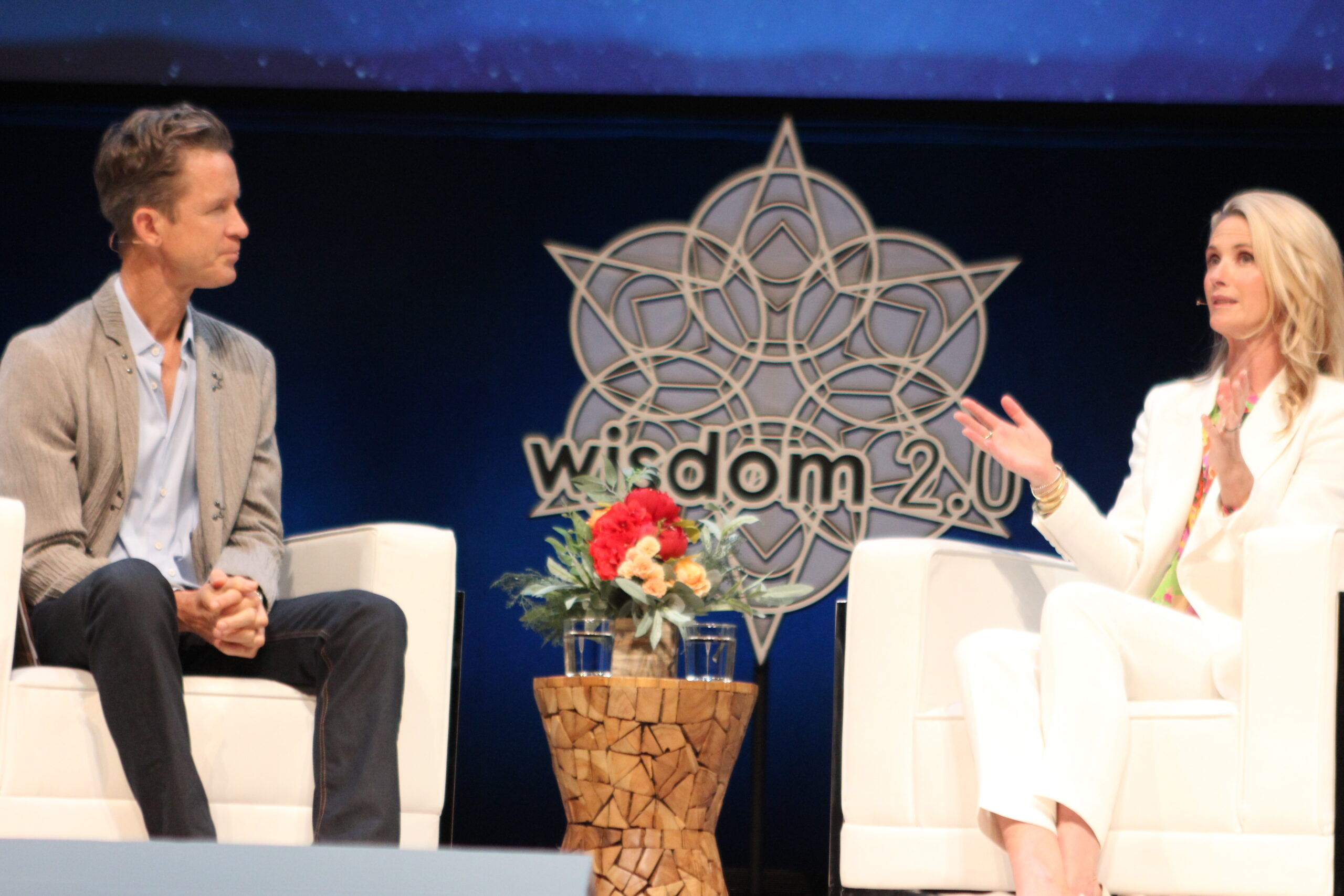
Soren Gordhamer and Jennifer Siebel Newsom
She says that we need to look at age appropriate design for technology and also set boundaries on where and when. During recess at school, kids aren’t socializing as much when they spend the entire break looking down at their phones. When kids are more isolated and less social, it can affect their mental health, including but not limited to eating disorders, anxiety and depression. “Comparison leads to all unhappiness,” says and then she adds, “Our kids are beautiful mirrors for us.”
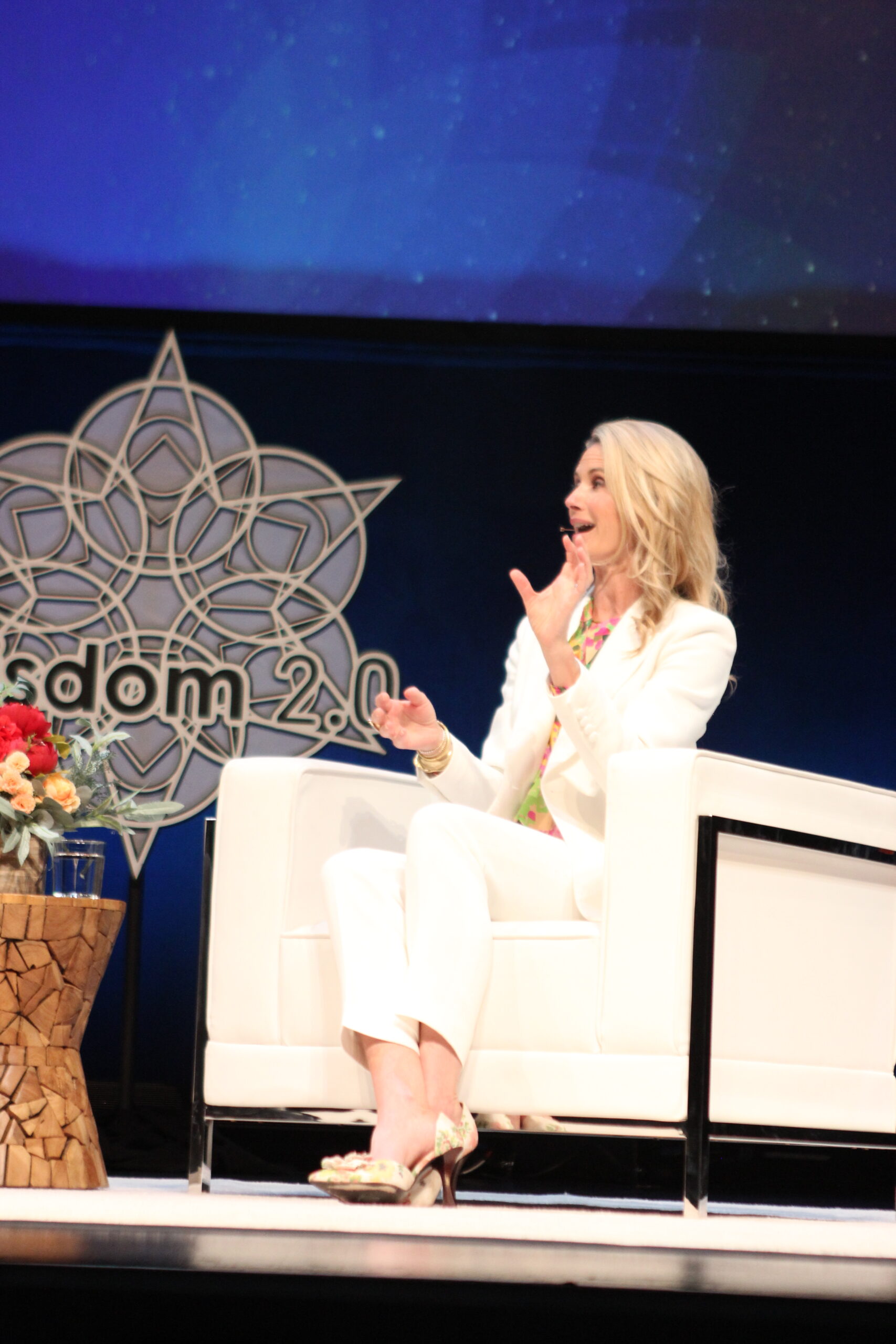
Jennifer Siebel Newsom
While most people know her as the wife of Governor Gavin Newsom, she’s also an American documentary filmmaker, director, producer and actress. Jennifer was behind Miss Representation, which premiered in the documentary competition at the 2011 Sundance Film Festival. “We still devalue feminine power in our society,” she says.
Sounds True founder Tami Simon interviewed Dr. Jeremy Hunter on Managing Your Nervous System, a topic that could be useful for all of us. After all, doesn’t it feel like we are getting more demands? In the discussion, they asked, “Can we use business to provoke our evolution?”
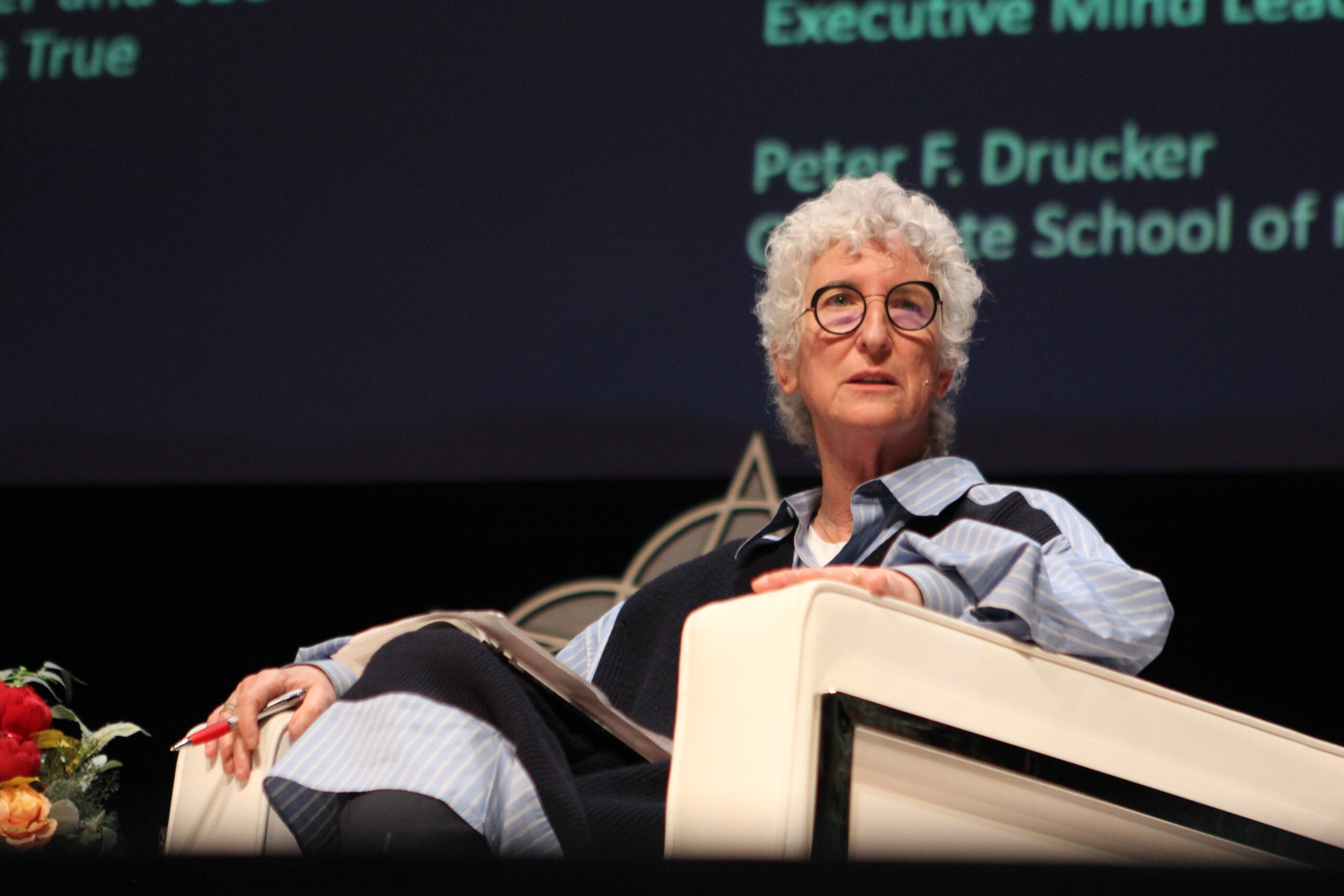
Sounds True founder Tami Simon at Wisdom 2.0
Using your life as a training ground, he discussed how we can make a life despite all the stuff hitting us on a regular basis. In other words, how do we manage it all while keeping our nervous system in check? Jeremy says, “There’s very little systematically that focuses on the inward journey, what’s going on inside. What we’ve left off the table is sensing, feeling and connecting. We need to evolve to see a much more expanded view of ourselves and step into it.” He adds, “We have radically settled for what it means to be human.” I couldn’t agree more.
Jeremy asserts that we need to evolve our own personal operating system. He spoke of his own experiences in life and how starting early on in our lives, we try to normalize what we have experienced as children. In other words, we normalize our trauma because we don’t see it as trauma. He says that we must “heal our trauma and take it seriously.” Put another way, people all too often want to check out too soon. We may embark upon the healing, but we can’t give up or let go too soon. “It’s not just transforming the wound, but it’s also removing the fear,” he adds.
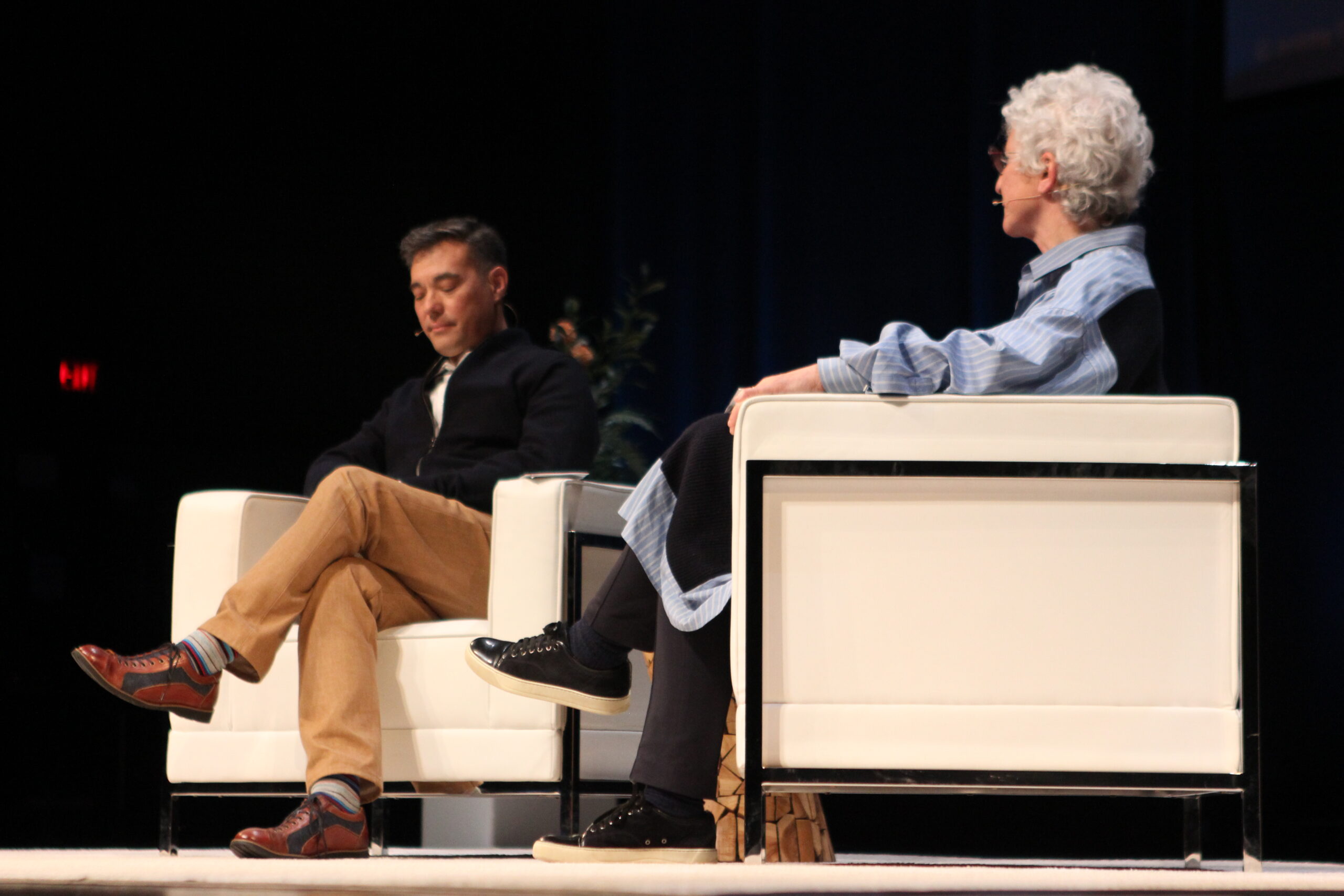
Dr. Jeremy Hunter on stage with Tami Simon
Speaking of trauma, world renowned trauma expert Dr. Gabor Maté kicked things off on the opening night. The bestselling author of four books published in over thirty languages, Gabor is an internationally renowned speaker highly sought after for his expertise on addiction, trauma, childhood development, and the relationship of stress and illness. He is also co-developer of a therapeutic approach, Compassionate Inquiry, now studied by hundreds of therapists, physicians, counselors, and others internationally.
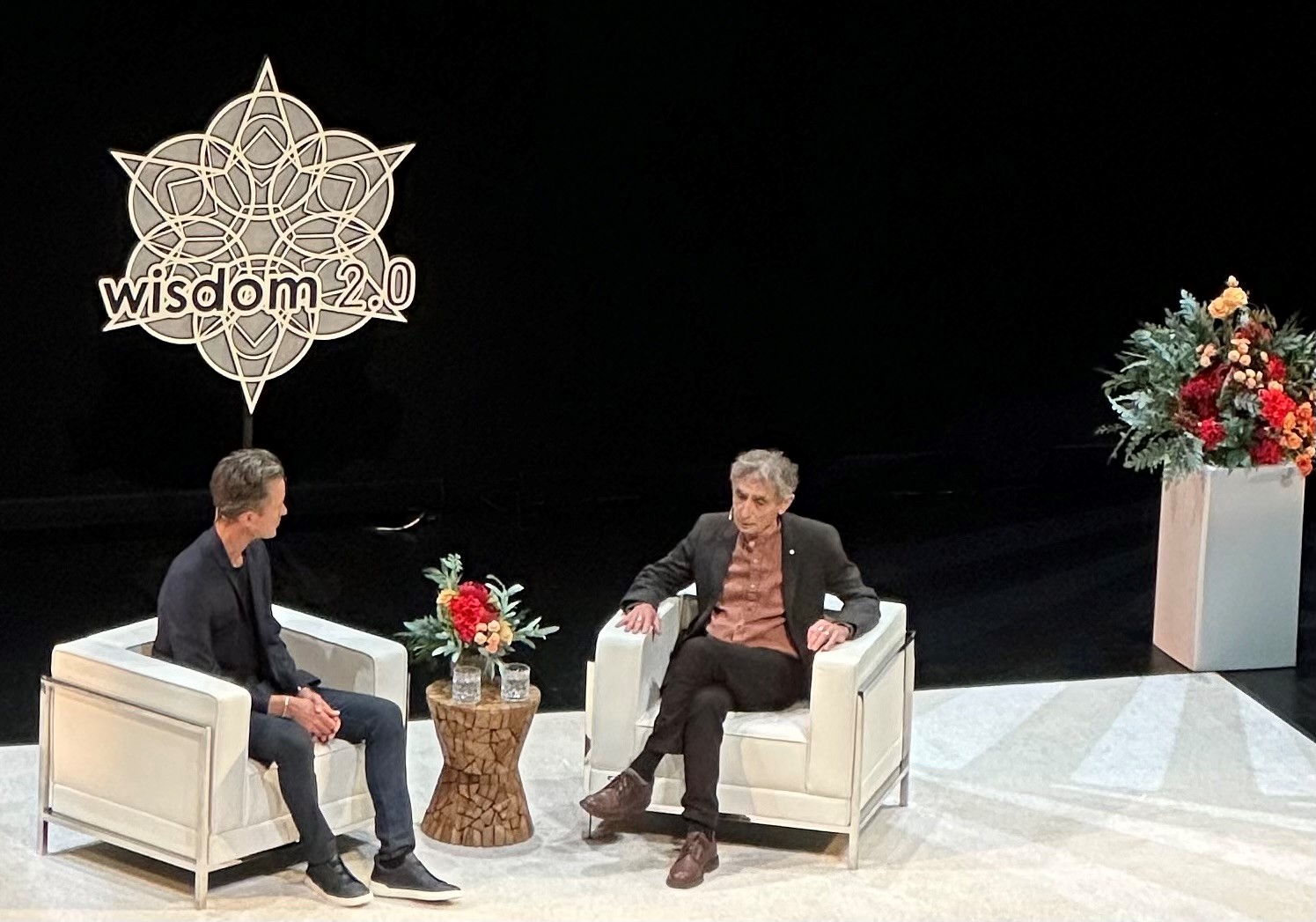
Soren Gordhamer and Dr. Gabor Maté
Rather than offering quick-fix solutions to these complex issues, he weaves together scientific research, case histories, and his own insights and experience to present a broad perspective that empowers people to promote their own healing and others. After his Friday evening fireside chat, he returned on Saturday to answer questions casually with others on-site, which is where I had an opportunity to connect with him.
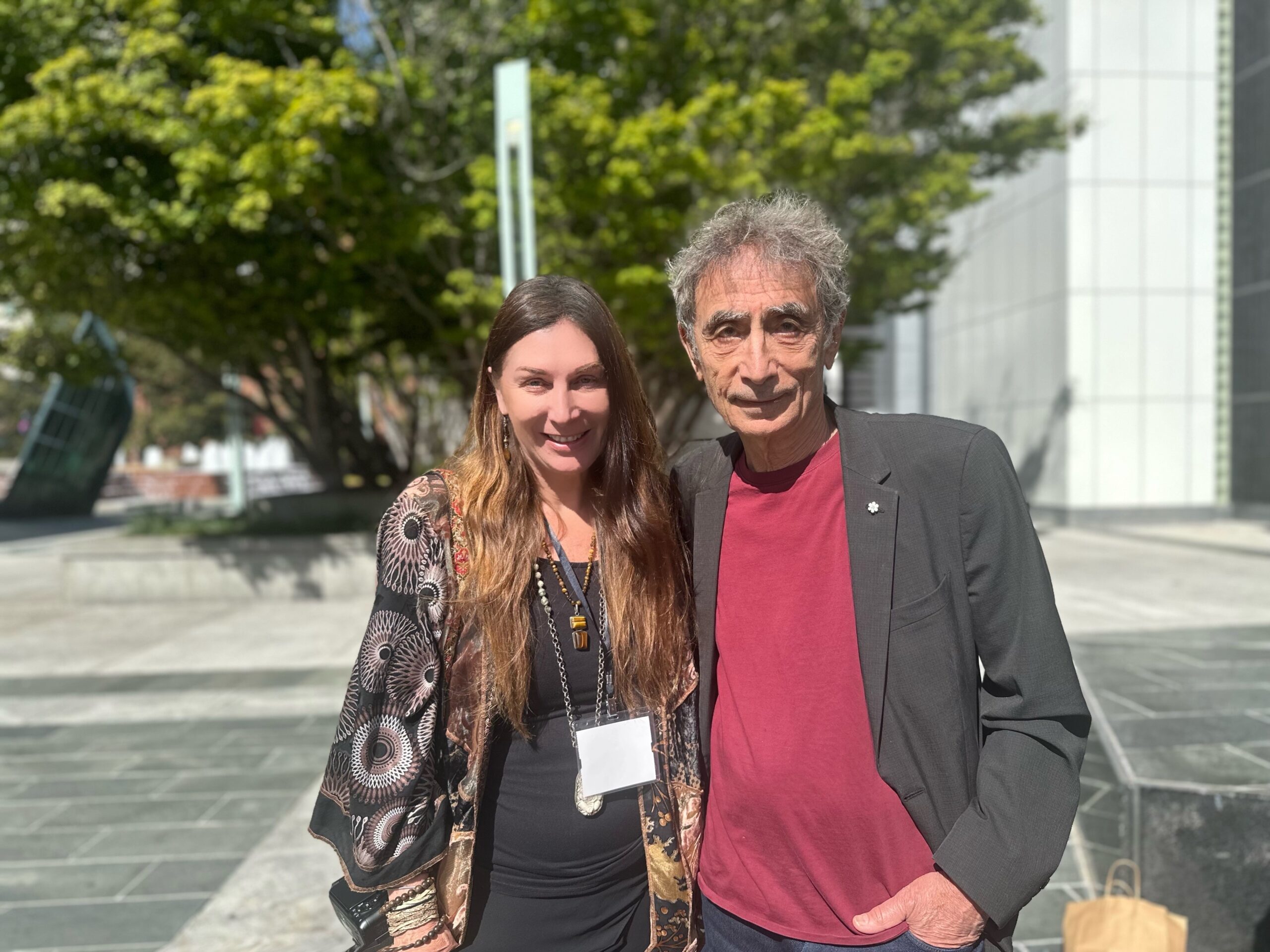
I’ve been a fan of Byron Katie’s work for years. Ironically, she calls her work The Work. One of the unique things about her appearances at Wisdom 2.0 (and often other places), is that she’ll work directly with people in the audience, which she did again. One of the things we brought up as a collective, was unworthiness – it comes up everywhere doesn’t it?
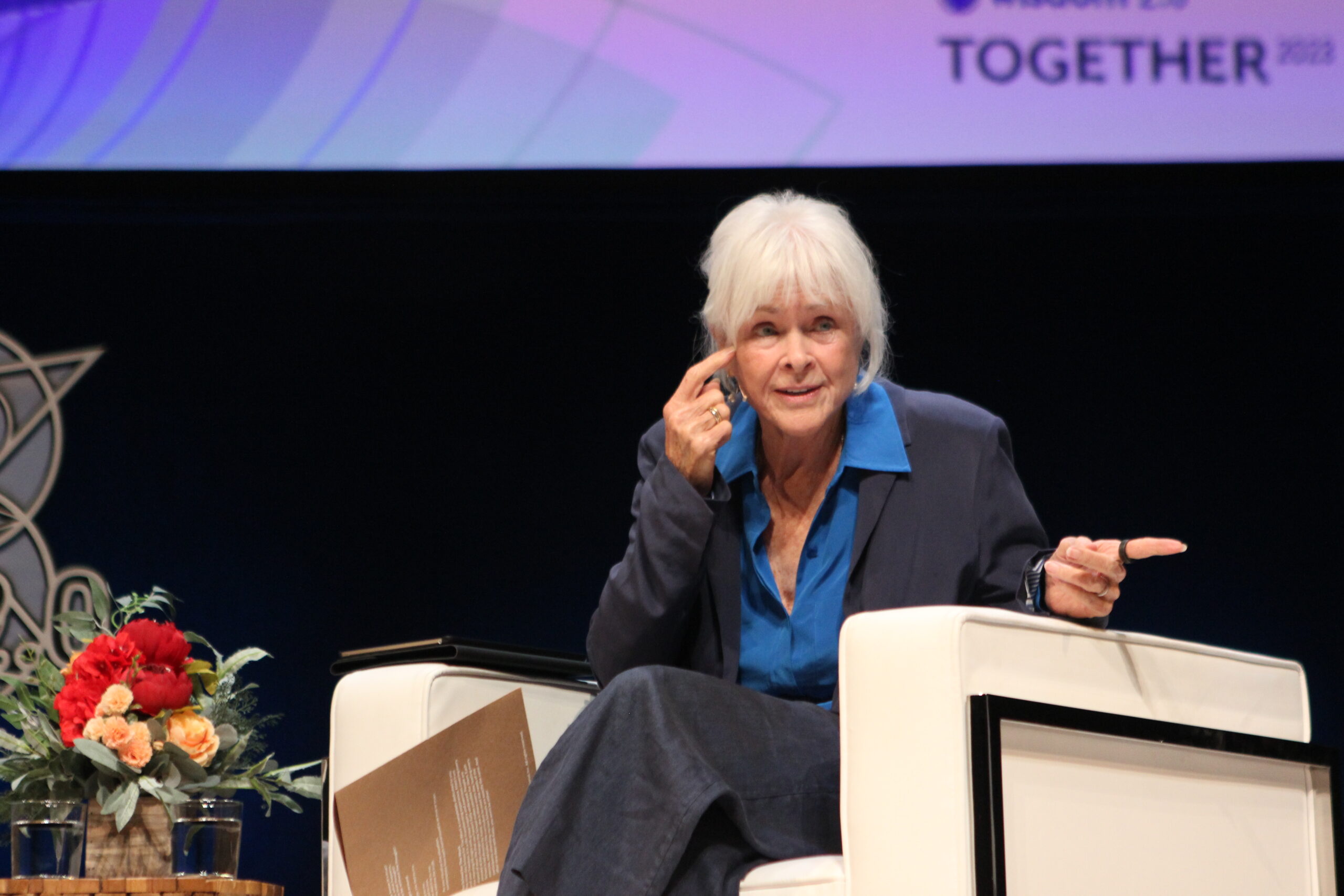
Byron Katie
She asked the audience, “Notice what comes into your body when you think of moments in your life as unworthy.” It’s when we are in our small ego self that we don’t realize our power. She adds, “I experience ego as a terrified, frightened child. Rest is the absence of ego, for ego doesn’t sleep.” No wonder meditation and silent moments with your Higher Self kick ego to the door. This is how Byron Katie explains it:
“When you allow time and space before ego comes into the space, there is light and freedom. The ego comes in to name it. The ego doesn’t sleep because it’s terrified of being nothing. We’re always looking for the answer to ‘Who am I?’ In other words, the ego is looking for a home. When you sit in self-inquiry, the ego is noisy. But its respectful to listen to a terrified child, so compassion and empathy are needed. Observe: what is trying to emerge? Ask the wounded, terrified child about a belief system she holds. Is it really true?” -Byron Katie
Then she asked, “Witness how you react when you believe a thought or belief. Notice how you react and be witness to it. Get in touch with the situation.” If anger emerges, its useful to remember that you cannot be angry unless you are in the past or the future. Try to get angry in the present moment – it’s not possible is it? When you’re truly in the present moment. Later, she says “No one would ever harm another human being if they weren’t asleep to themselves.”
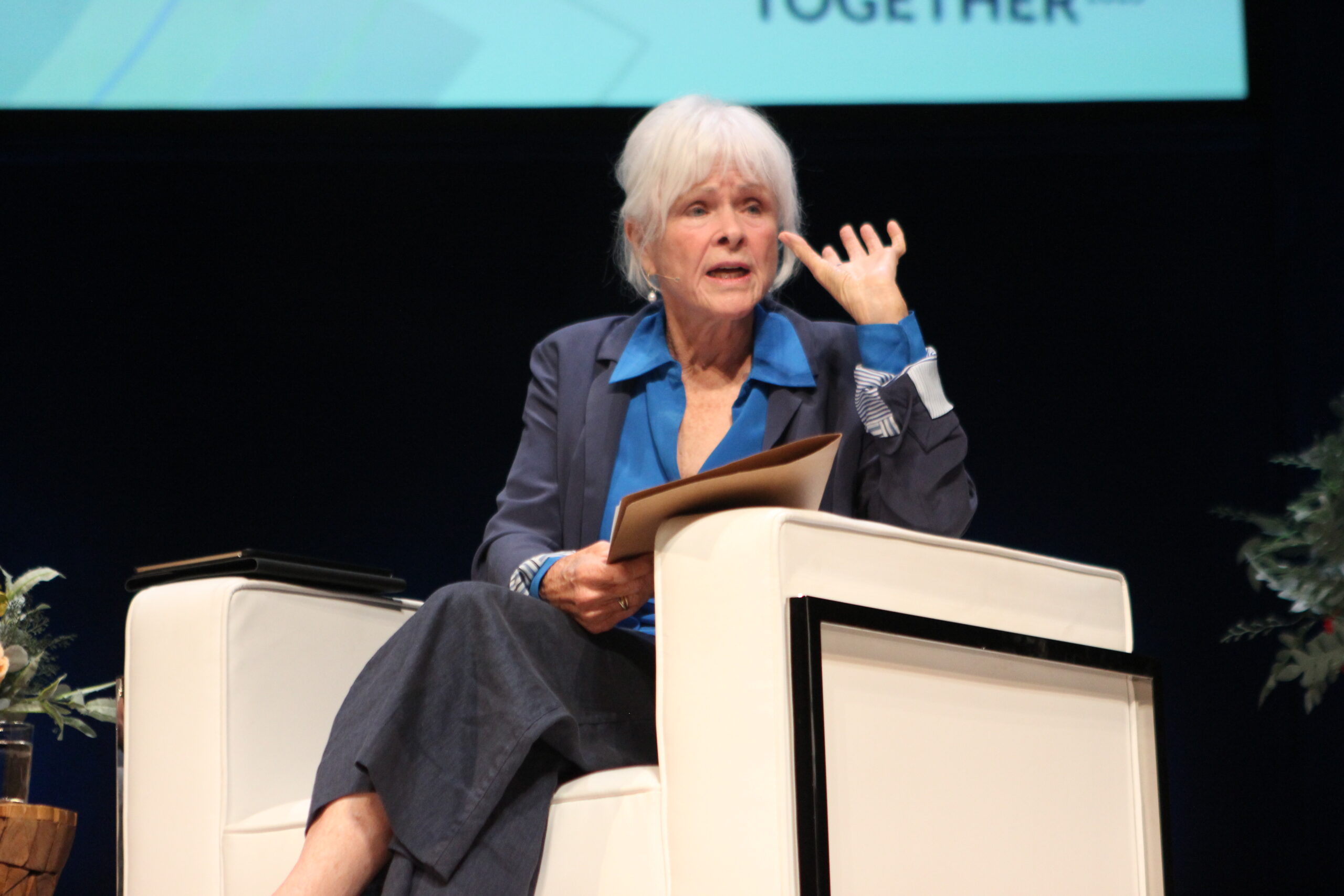
Byron Katie
One of the things I love about her teachings, is that it requires you to be present. When you’re in the past or future, it’s as if there’s an egoic play going back and forth, like being caught in the dream of a past/future play. But when you sit in silence and authentically inquire from that place, you miss nothing. Anticipating is truly the suffering.
Diego Perez also joined us (below on the right). He is the poet and philosopher behind the pen name Yung Pueblo, which means ‘young people’ and it reminds him of his Ecuadorian roots and activism. He says, “every time we take in new stuff, we are always conditioning the mind; it happens continuously after age seven. Each of us are wired so differently that we need to find whatever works to unwire that conditioning.” He asks the audience, “What meets my conditioning where it’s at?”
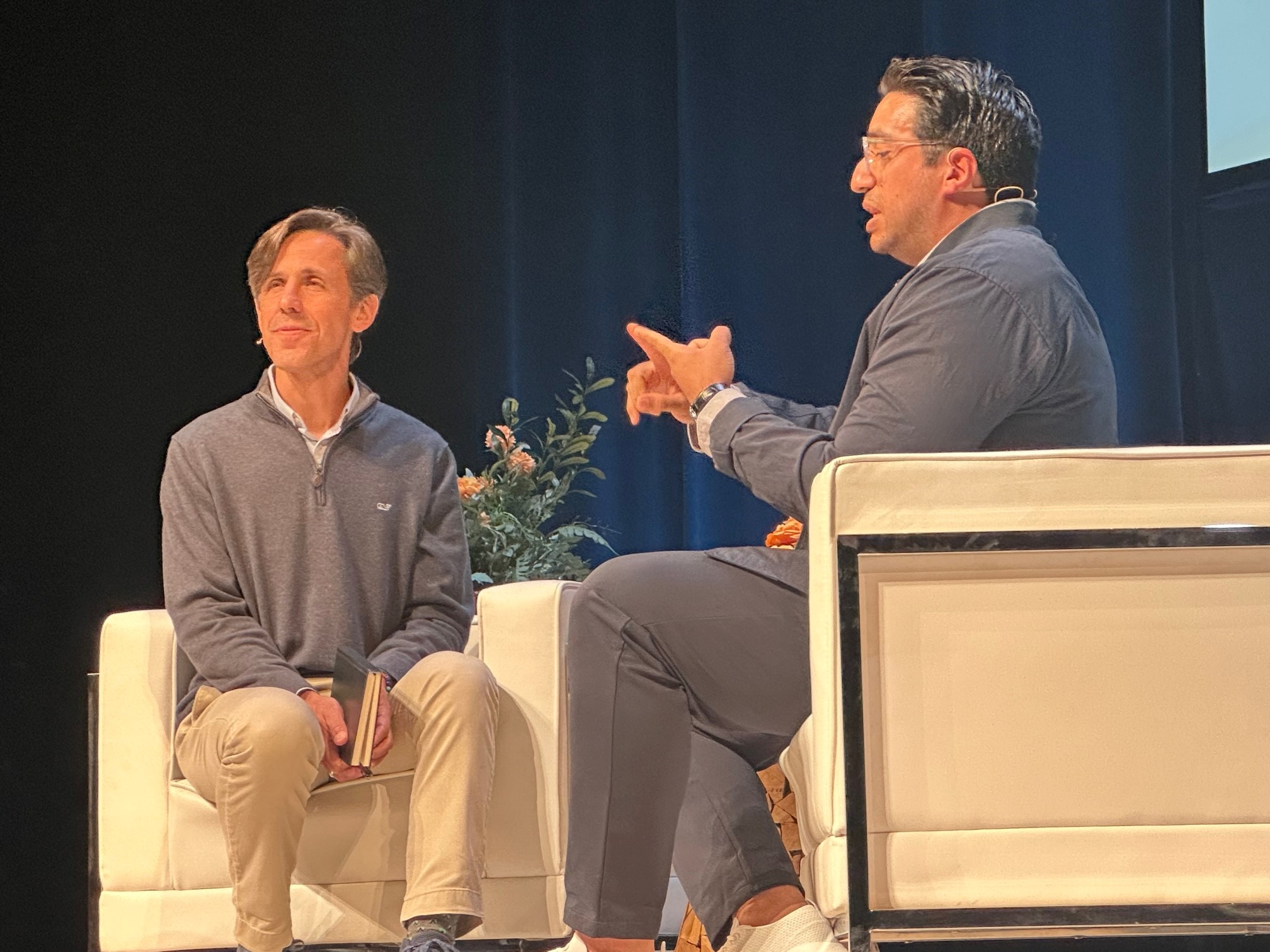
Left, David Simas and right, Diego Perez
He asserts that slowing down is key to that unwiring. Rather than constantly plugging into our technology and social media, he suggests:
“Be present and just absorb things. We’re not critically thinking about the subjects we browse through. Be okay to say ‘no,’ and don’t always have an opinion. When you slow down, you allow yourself space and time to fully understand the topic, get the answers from within and just observe.” -Diego Perez (Yung Pueblo)
He continued to share his lessons, you know…the fundamental things we try to teach children but collectively fail at, such as being kind to each other, picking up after yourself, not hitting one another, saying positive things (not negative things) to others and treating the planet well. Hear hear. These are indeed basic and fundamental best practices. He says, “Your first reaction is your past, your intentional reaction is your present.”
Dr. Lyla June Johnston (aka Lyla June) also graced the Wisdom 2.0 stage this year. She is an Indigenous musician, scholar, and community organizer of Diné (Navajo), Tsétsêhéstâhese (Cheyenne) and European lineages and I’ve heard her speak (and sing) in several others places, including the IONS Conference (Institute of Noetic Sciences). We captured some of her performance on video, so be sure to check out the summary video at the bottom of the article.
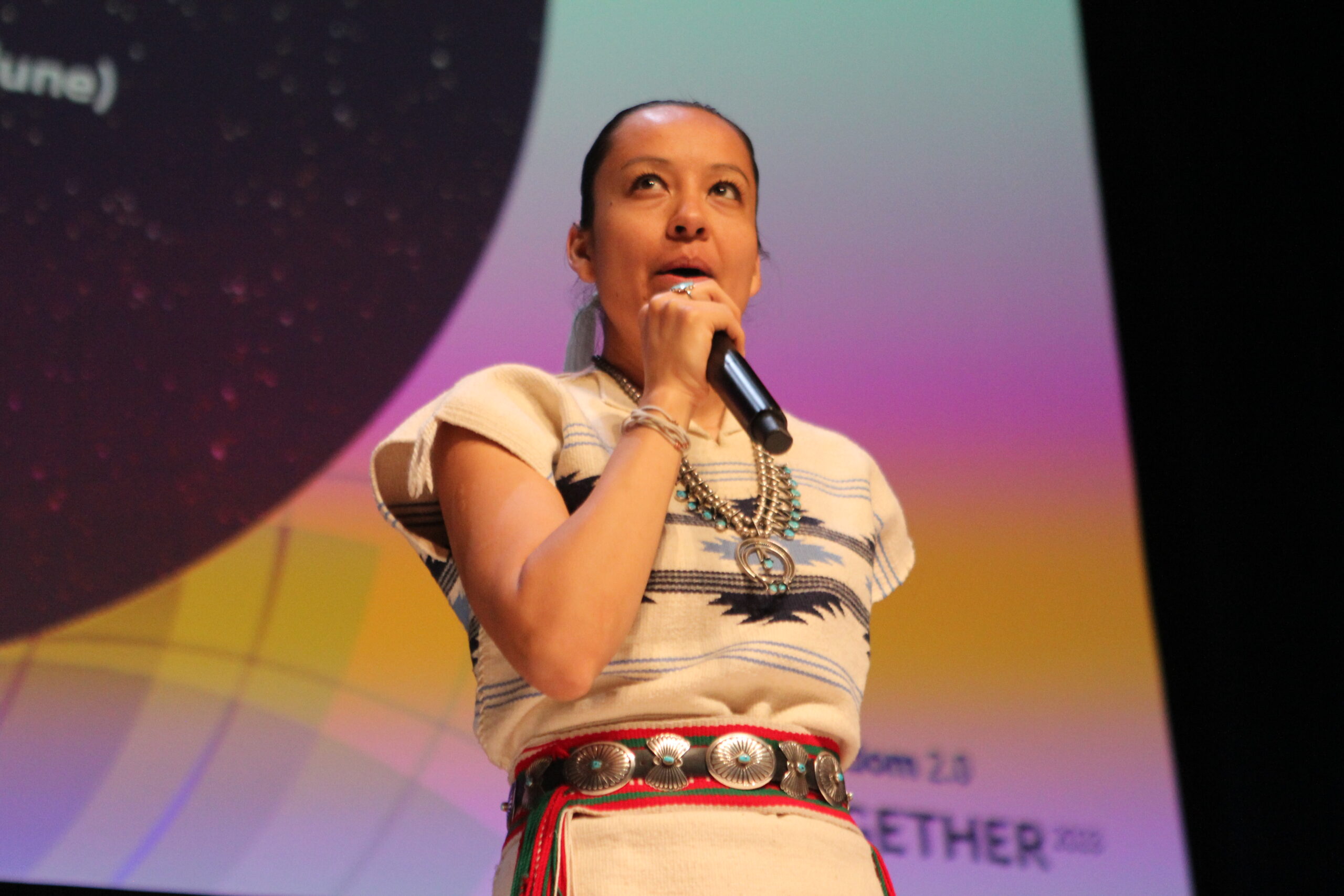
Lyla June Johnston
Her messages focus on Indigenous rights, supporting youth, traditional land stewardship practices and healing inter-generational and inter-cultural trauma. Right after Lyla, Dr. Yuria Celidwen spoke on the main stage. She is from Indigenous Nahua and Maya descent, born into a family of mystics, healers, poets, and explorers from the highlands of Chiapas, Mexico. I love the way she speaks because it’s poetic and synergistic, largely influenced by her elders’ songs and stories which enthralled her childhood. She says, “They enhanced my mythic imagination and emotional intuition, which became the fertile soil where the seeds of kindness, play, and wonder dig their roots.”
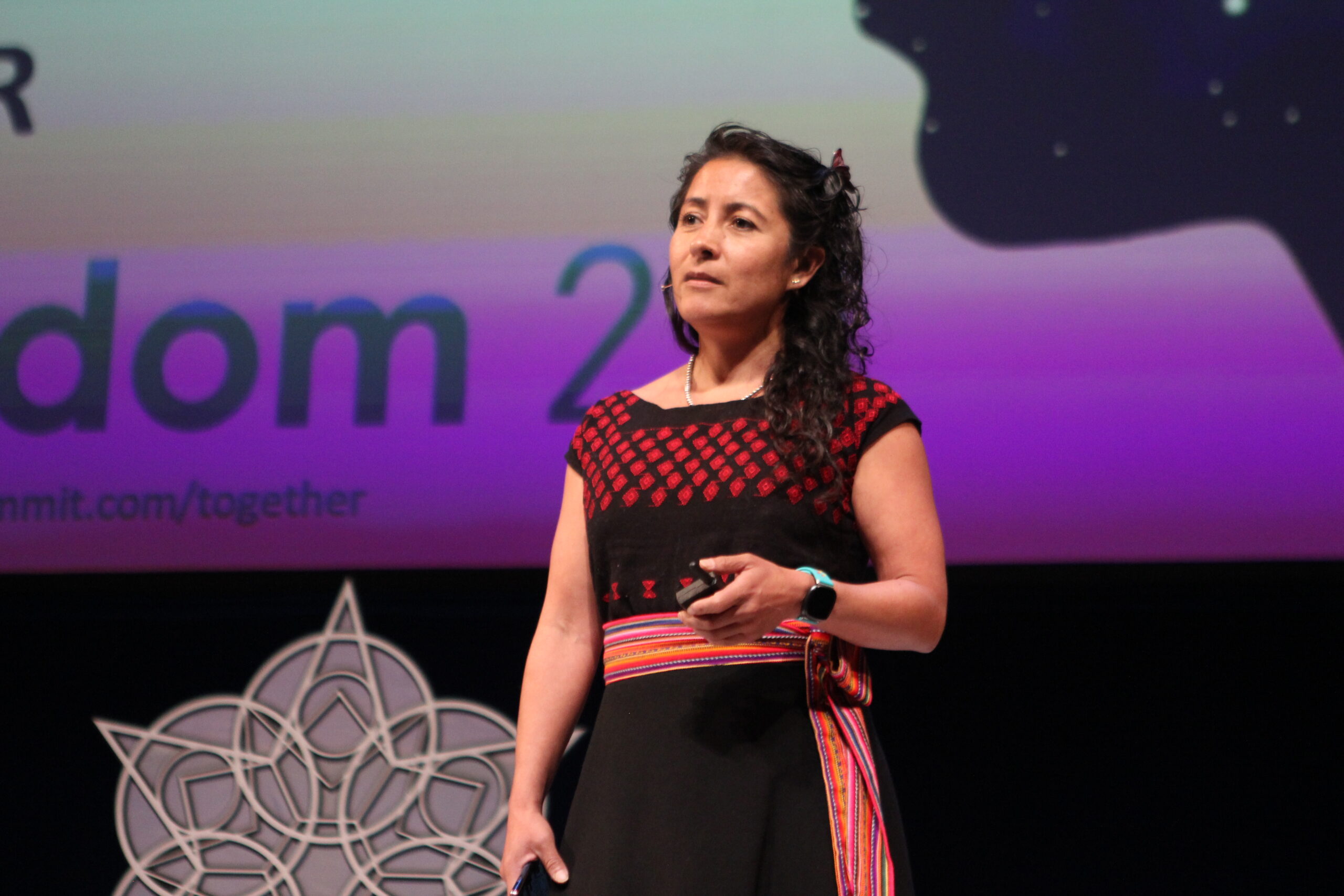
Dr. Yuria Celidwen
In her talk, she spoke about how her grandparents got their knowledge of healing from the earth. Yuria says, “they listened to the chants of the wind and the gossip of the birds. In the forest and starlight night, she learned about transcendence and contemplative life. She has learned over the years how to transcend her narrow identity and expand into something much more, where she has learned how to care for all life on our planet. It is integral to her ancestors’ teachings.
“Finding home has been a lifelong journey, so it has been a constant inquiry,” she says. “Dreaming is…time without time, where we set ourselves free. In the face of impossibility, we learn that we can fly.” Her slides show how the benefit of indigenous sciences is always for the well-being of the planet, not for individual gain. It’s always about the collective gain.
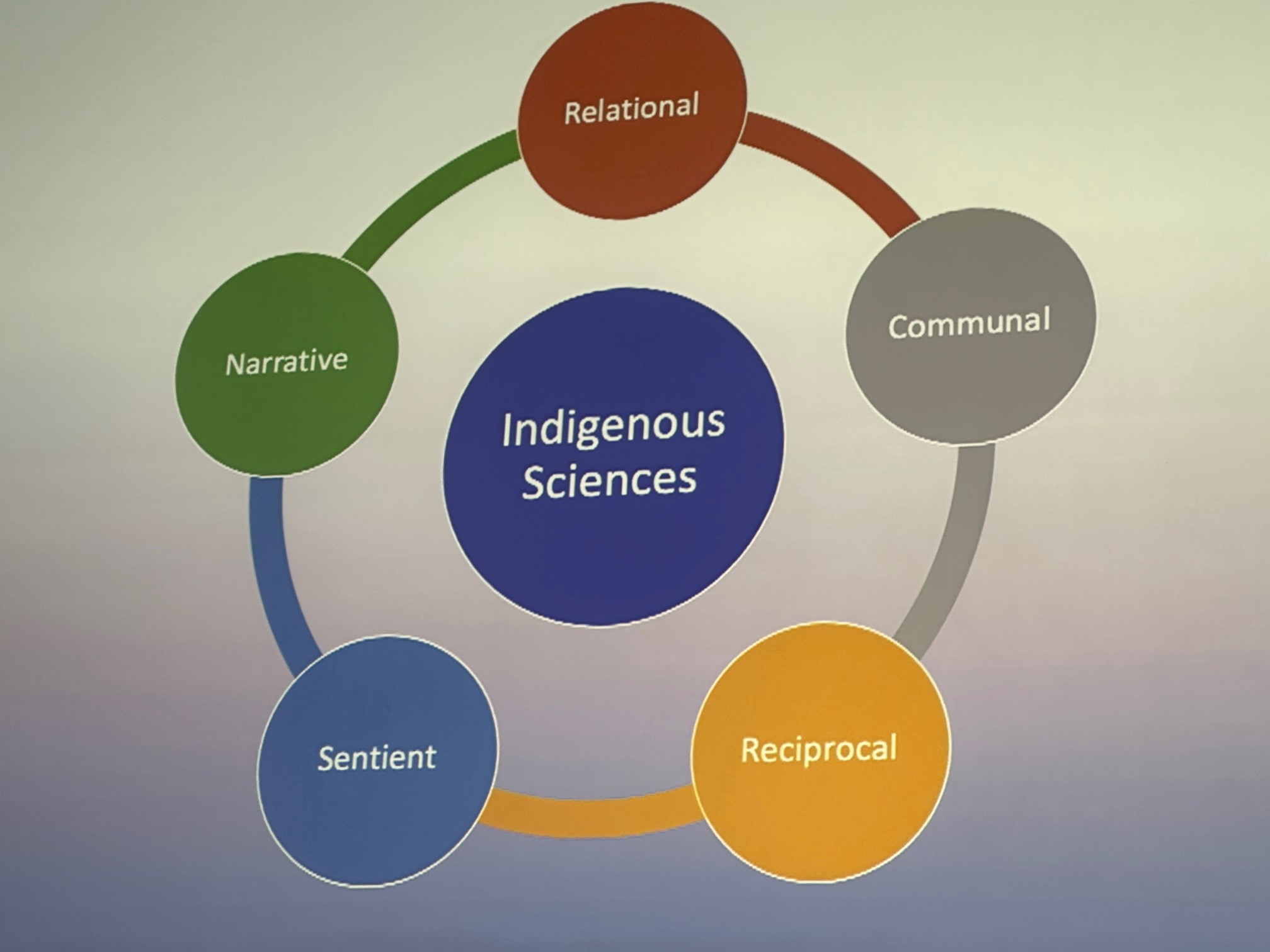
Dr. Yuria Celidwen’s slide
She also spoke about the ethics of belonging. Kin relationality is about embracing all of existence. Mother Earth is a nurturer. “Ecological belonging,” she says, “takes Mother Earth into consideration and her ability to thrive. There’s no such thing as a human being flourishing unless Mother Earth flourishes first.
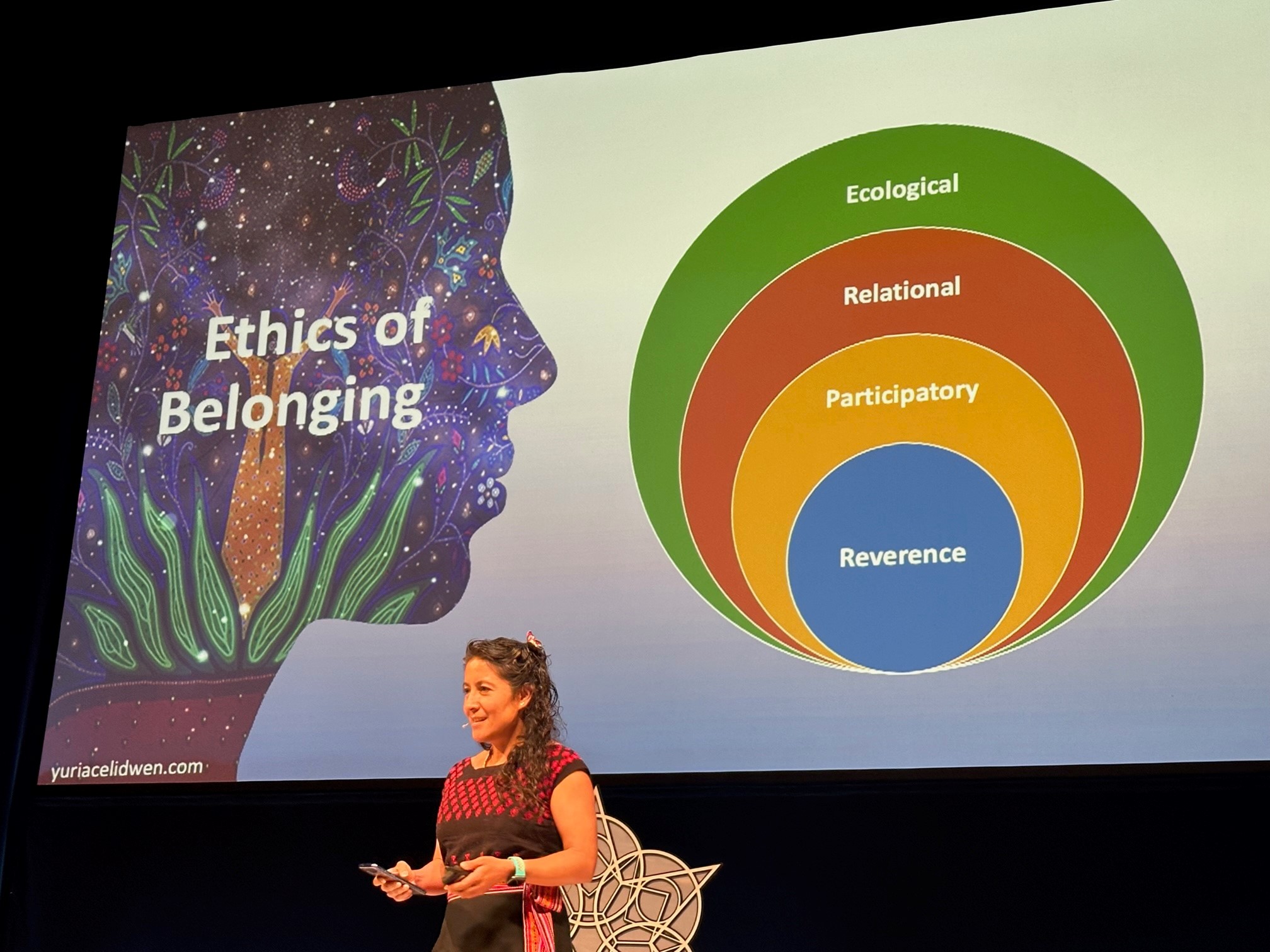
Dr. Yuria Celidwen on the main stage
“We want transcendence, not transactions. We need to bridge and create a sense of belonging for everything on our shared existence. Being participants means having an ethics of belonging for all living things. It’s weaving mystery and inquiry and leave a sense of sacredness.” -Dr. Yuria Celidwen
Dr. Rick Doblin, who is most known as the founder and executive director of the Multidisciplinary Association for Psychedelic Studies (MAPS), also took center stage to talk about psychedelics. Fostering the psychedelic Renaissance, he joked about his bar mitzvah. He says he was hungry for the next level experience at age 13. Forward wind the clock to present day, his son said to him after his first experience, “Now I understand why you want to make this a medicine.”
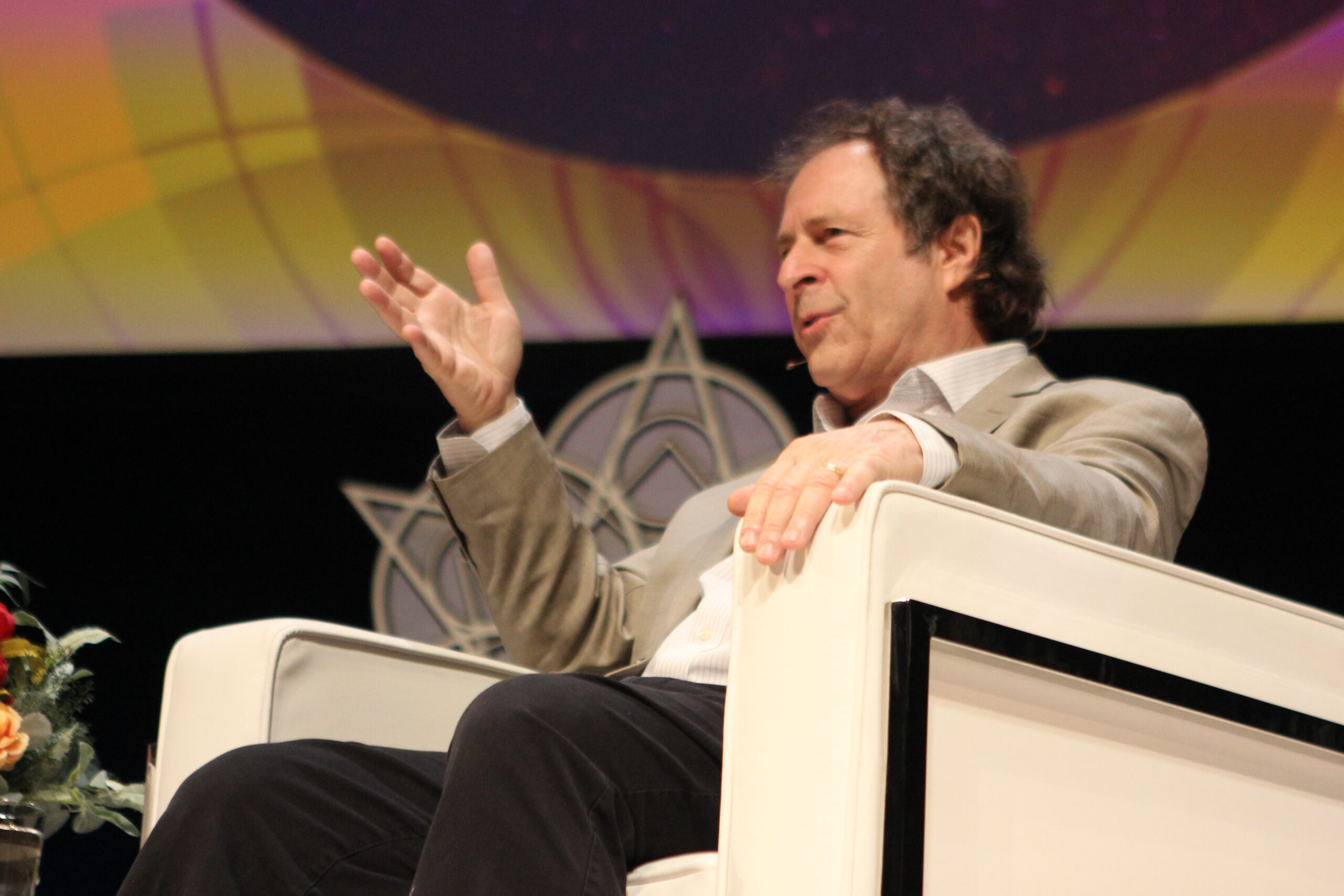
Dr. Rick Doblin
Rick says, “We need an evolution of the spirit. Beyond PTSD, people long for a deeper spiritual experience, to quiet the mind and calm the soul.” That longing is certainly showing up around the world right now. We need to own our own stuff – our traumas, our shadows, our triggers – all of it.
When someone is going through PTSD, their brain isn’t sorting information normally. When people have a MDMA experience, he says, the fear signals from those memories are diminished. It increases a connection within the hippocampus and releases useful things like oxytocin. When they’ve done studies on mice, they’ve been able to see that the MDMA increases neuroplasticity which in humans, can make psychotherapy more effective. Rick says, “The MDMA brings memories to the surface but in a way that makes them safer and not so traumatic.”
This is not an ordinary therapy experience and the sessions are long. Consider 42 hours or longer of therapy with two therapists – in his case, they do the sessions with one female and one male therapist. They call it The Archeology of Trauma. In their Phase 2 studies, people got better over time on their own without the drug because “they‘ve learned how to release the trauma in their bodies and the effects are durable.” The progress has been staggering when you consider how fast it is being implemented and increasingly accepted.
The topic of teenagers came up and their overuse of video games and social media as well as how to raise drugs with them. Rick asserts that the key is “teaching responsible use and accountability. Teach them that there’s a responsible way to interact and have a relationship with whatever the ‘thing‘ is, whether its video games or a drug. Kids need honest drug education.” They need to learn things in a way that makes them feel safe and also how they can navigate it without getting kicked out of their social peer group. Rick reminded us that there’s one thing that people fear more than death and that’s getting kicked out of a tribe.
We are forging ahead though and acceptance is happening. Adoption is happening. And healing is happening. It doesn’t mean that all trauma disappears overnight, but it does mean that we can work to reduce it one step at a time.
“We want a world of net zero trauma. It doesn’t mean no trauma. It means we’re not adding to it.” -Dr. Rick Doblin

Dr. Rick Doblin
Although I didn’t see every session, a favorite was john powell, who purposely spells his name with a small j and a small p. He does this because he shares the belief that we should be “part of the universe, not over it, as capitals signify”. He is an internationally recognized expert in the areas of civil rights, civil liberties, structural racism, housing, poverty, and democracy as well as the Director of the Othering & Belonging Institute at the University of California, Berkeley, a research institute that brings together scholars, community advocates, communicators, and policymakers to identify and eliminate the barriers to an inclusive, just, and sustainable society and to create transformative change toward a more equitable world.
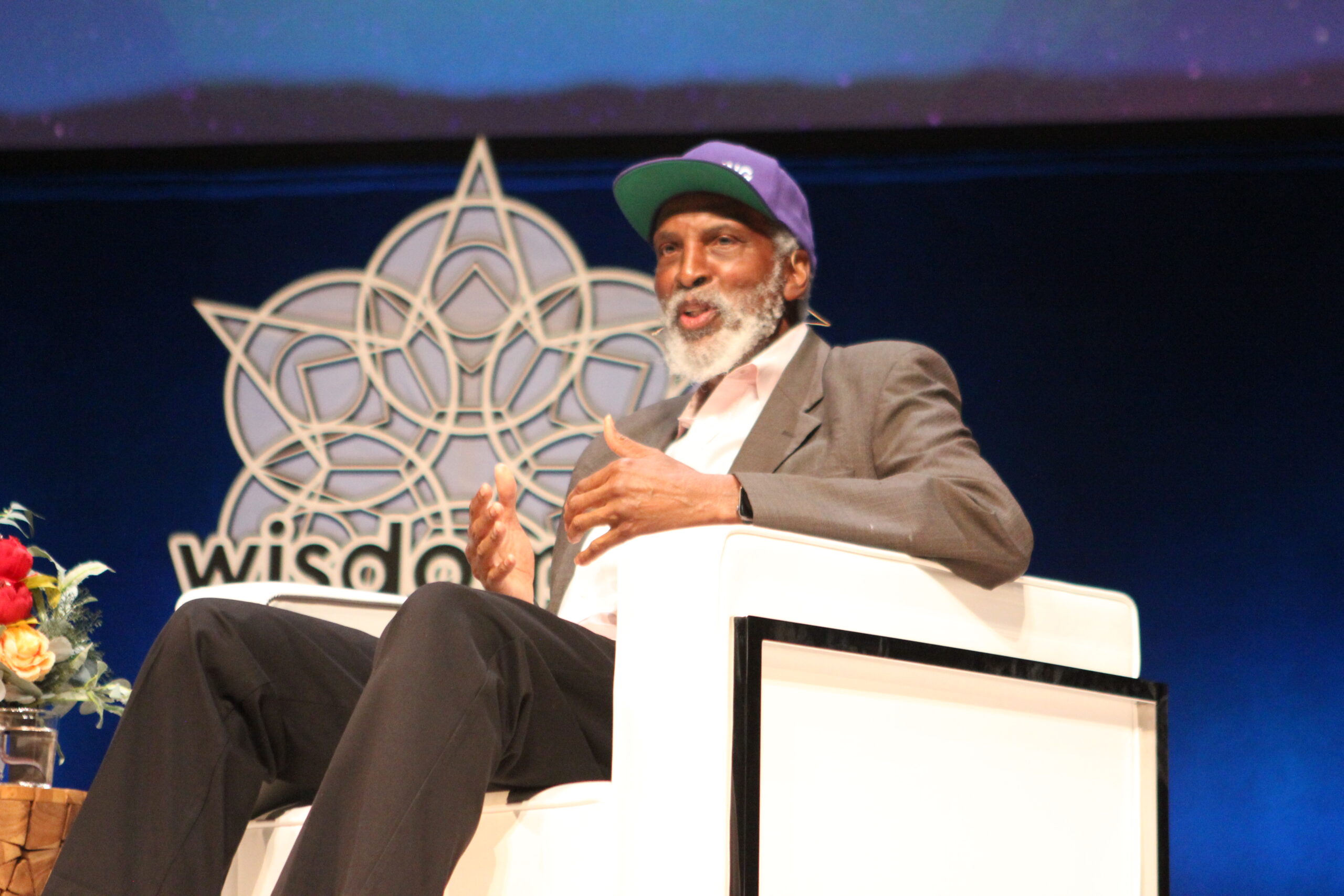
john powell on the Wisdom 2.0 stage in April
We also were graced by the presence of Rhonda Magee who I adore. As a Professor of Law at the University of San Francisco, she has studied mindfulness, its underlying origins in Buddhism, and its potential benefits and applications in the world for more than twenty years. A prolific author, she draws on law and legal history to weave storytelling, poetry, analysis and practices into inspiration for changing how we think, act and live better together in a rapidly changing world. A bold move, she got up on stage and led us in song. (see the video below to get a peak of it). It was soul inspiring, authentic and I’d add, fun.
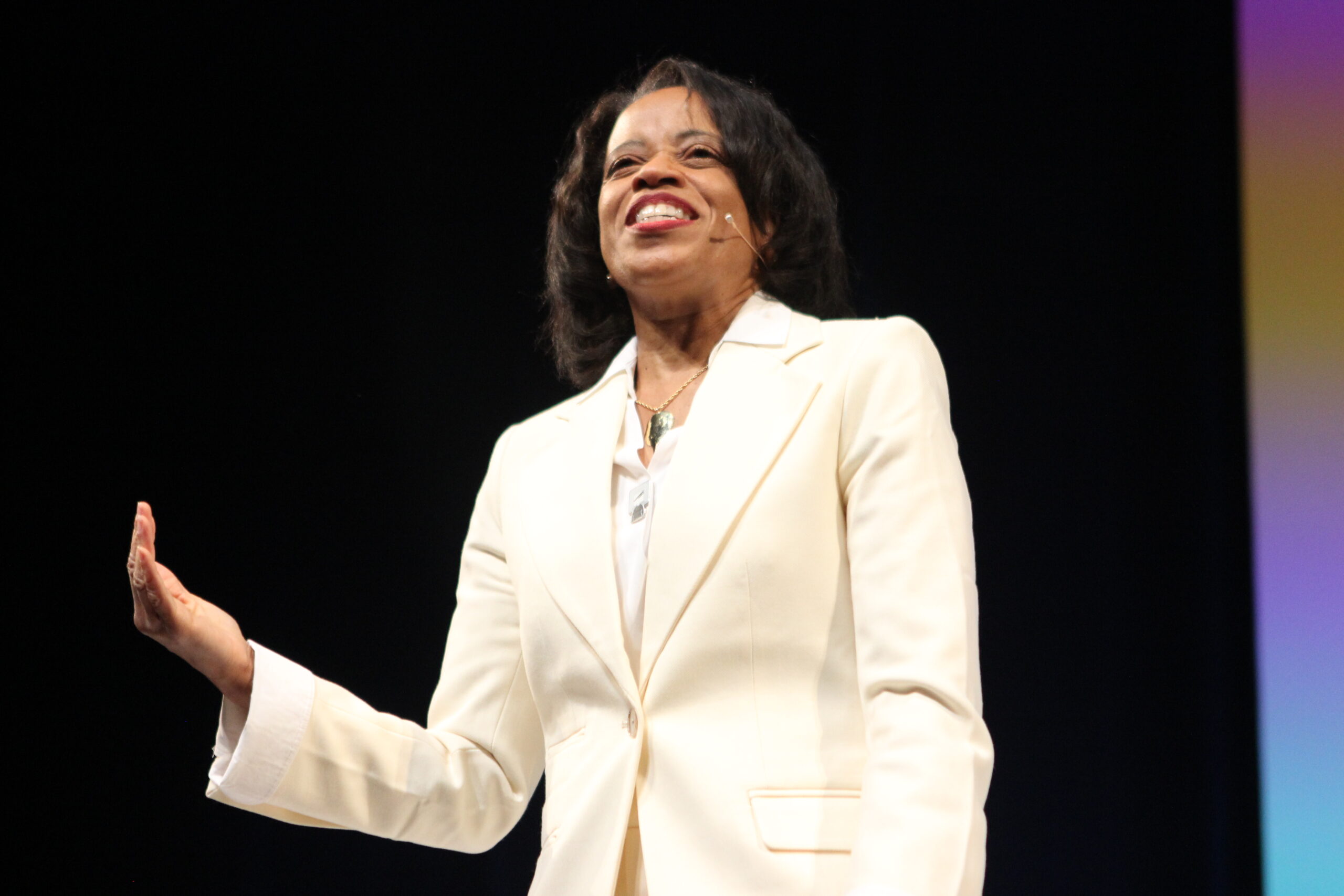
Rhonda Magee leads the audience in song
The closing talk was more of a fireside chat between Soren Gordhamer, Jack Kornfield and the founder of OpenAI Sam Altman. Jack and Soren had questions but the reason that the room was packed was because everyone had so many questions about how AI is going to impact our lives and where ChatGBT is headed. What will it mean for society? How will it disrupt other industries? How will it affect humanity and our trajectory as a species?
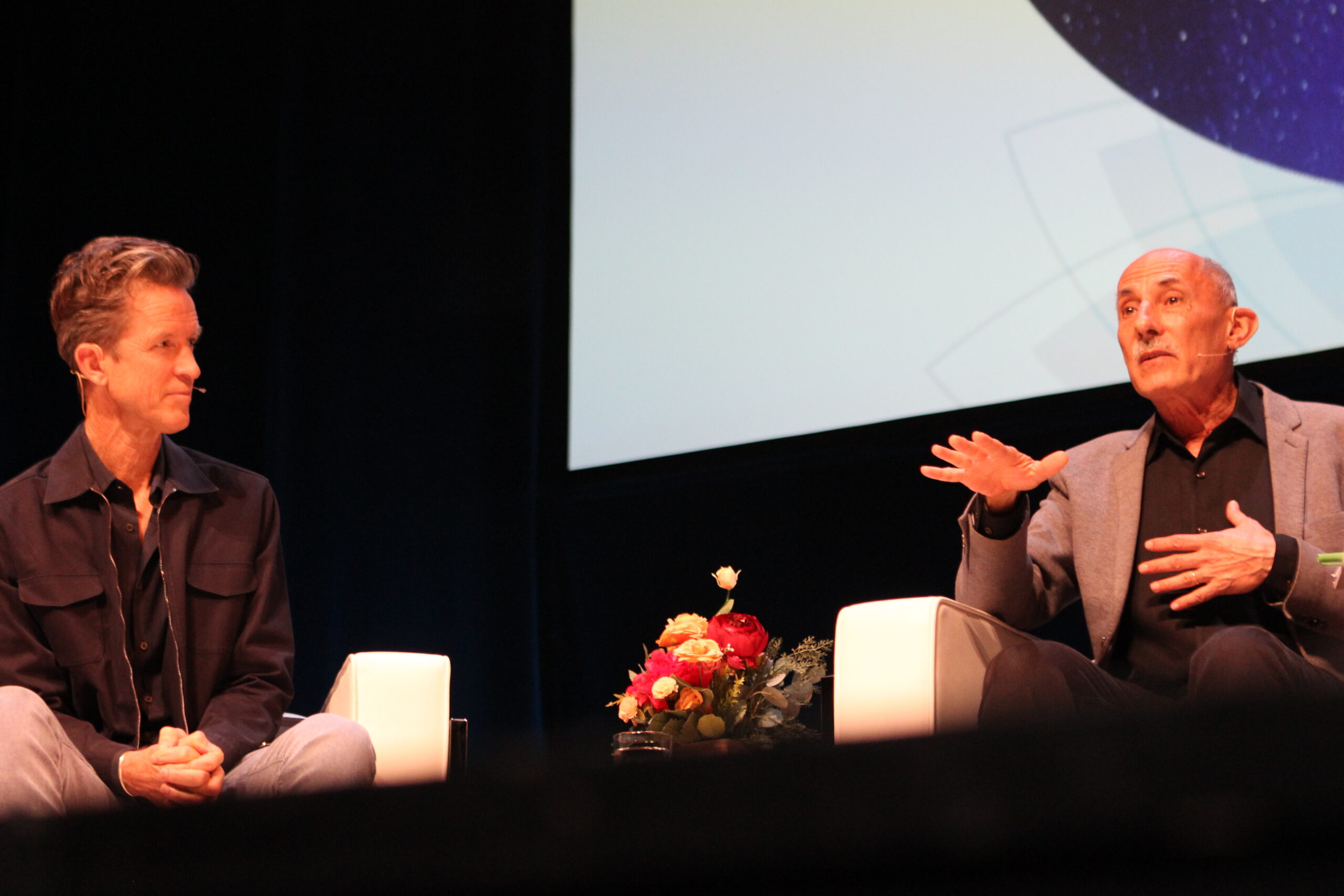
Soren Gordhamer and Jack Kornfield at the last panel of the day with Sam Altman of OpenAI
Excited about the collective wisdom from the masses for AI, Sam says, “This is going to be a massive change to society, so we need as many people involved as possible. We need developer cooperation and a framework from humanity about the values people respect and need.” How much will it become part of our lives, you wonder? Sam says, “I think AI will just be part of society.”
Soren asked Sam, “How do you see the role of identity in your own life? And what’s the role of tech and AI?” Sam says, “Anything that gets you to question is good. It’s interesting to watch people try to understand if AI can have a real identity. I think it’s important to release this and allow people to adapt. I am somewhat worried but we will discover how to integrate this into our lives.”
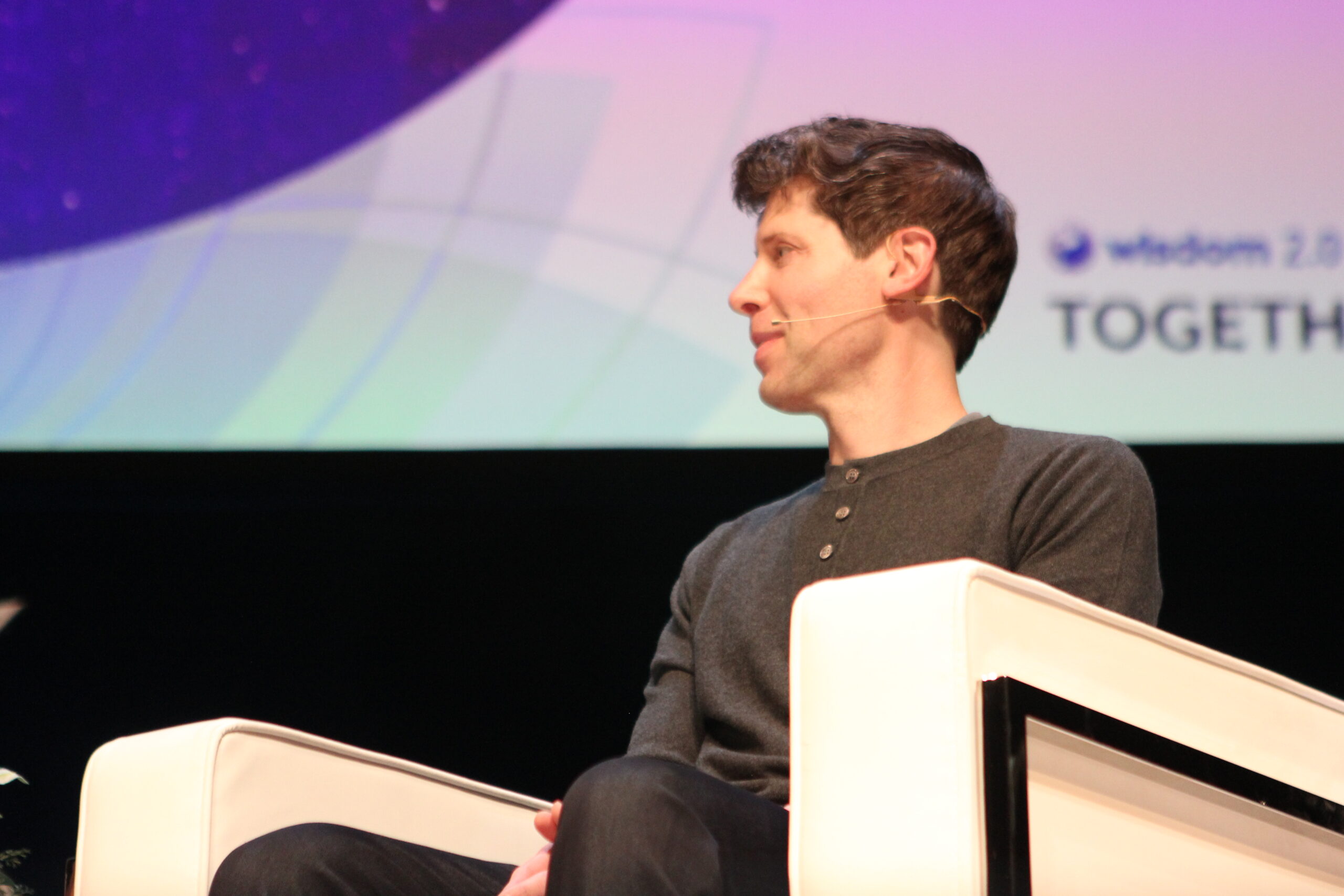
Sam Altman, Founder of OpenAI
As for the magnitude of this sociological and technological shift, Sam says that he thinks it will be “bigger than a technological revolution. It will be closer to a societal revolution. It will happen on a societal level really fast but I think we should also take pride that society has come together to do incredible things in such a short period of time.”
They eventually moved onto ChatGBT for obvious reasons. It has exploded and quickly. You might say that ChatGBT has had a faster adoption than anything else in the technology industry. Compare it to Instagram and other apps or tools that took off very quickly. In the discussion, they addressed the why, which led to things growing because it’s useful, but I’d argue that’s not always the case. ChatGBT is also surreal, has an awe component and it’s outerworldly in countless ways.
But what about ChatCBT’s ability to learn on its own and figure things out? Sam responded with a question, “Will this be one giant brain in the sky? I think it will be more like the all that contributes to the wisdom in the sky.” He added, “We will need to move beyond capitalism to handle humanity and where it’s going. As we evolve, we will need to move beyond it.”
We all seem to agree that humanity needs to develop a connection to a higher consciousness and embody it. Consciousness is already there. The million dollar question is: will AI help with this in a positive way?
Jack piped in and said, “I only appreciate collective wisdom. Let’s learn together on how we shepherd and steward this.” Jack also added his own perspective into staying grounded and tending to your inner life as an entrepreneur. He says, “We need to get quiet enough to listen deeply to our own wisdom and insights, so we can have a spaciousness and a graciousness to make better decisions.” Hear hear Jack.
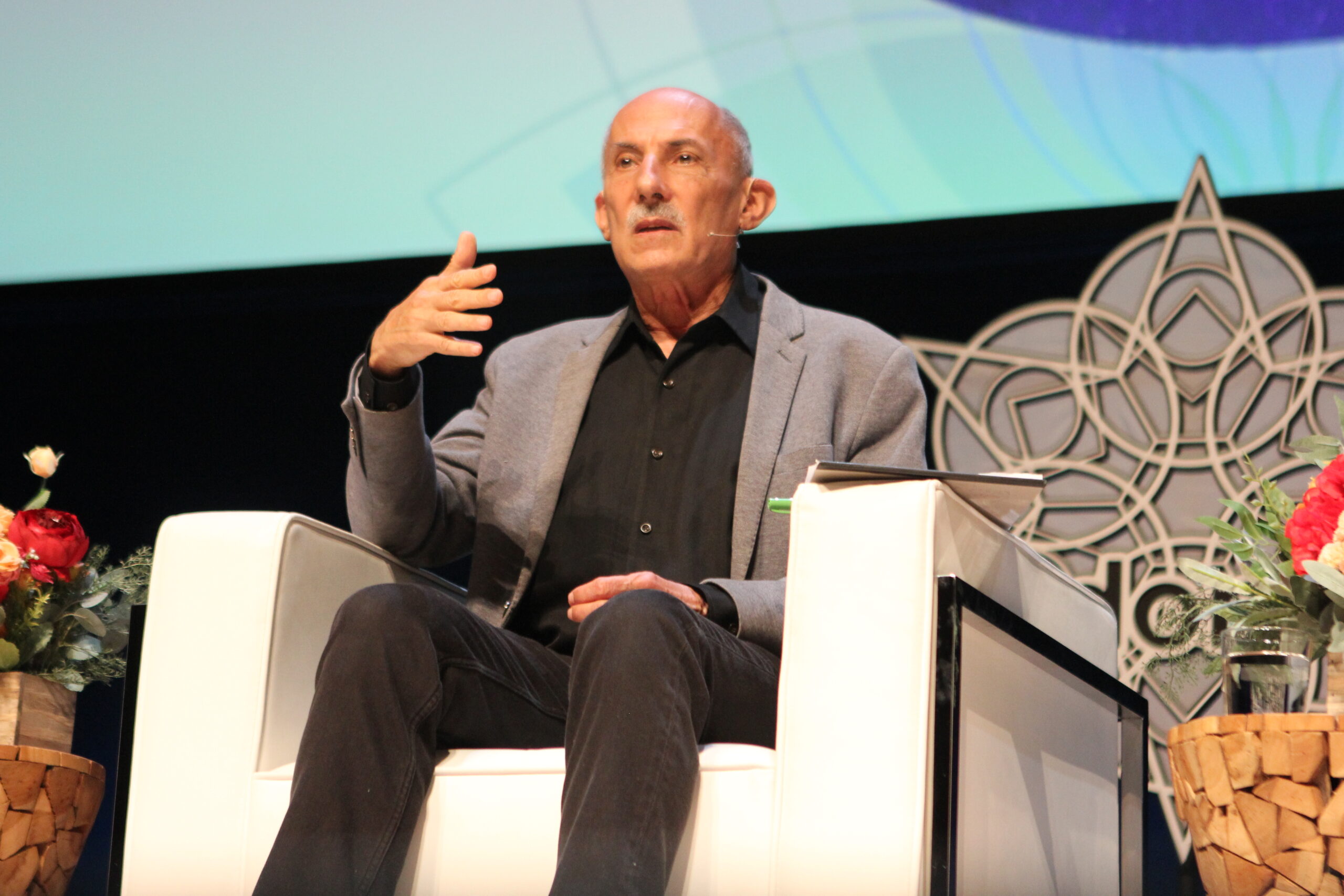
Jack Kornfield
Aside from talks, panels and fireside chats, there’s experiential time. Many of the speakers also went into deeper dive discussions with people in smaller break-out rooms. And of course, there’s networking with fascinating people from around the world, all of whom are interested in consciousness, technology, science, business and spirituality.
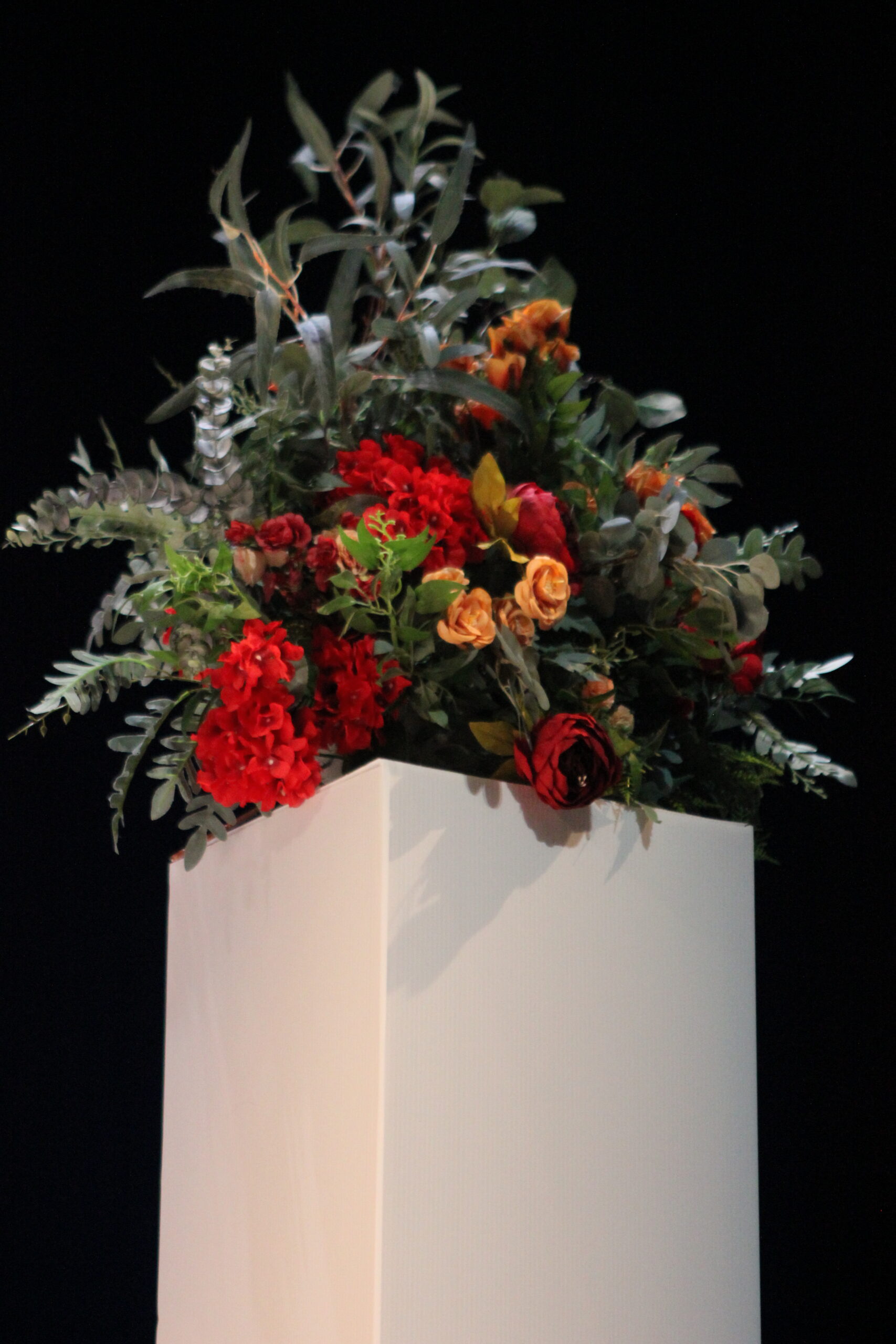
The main stage
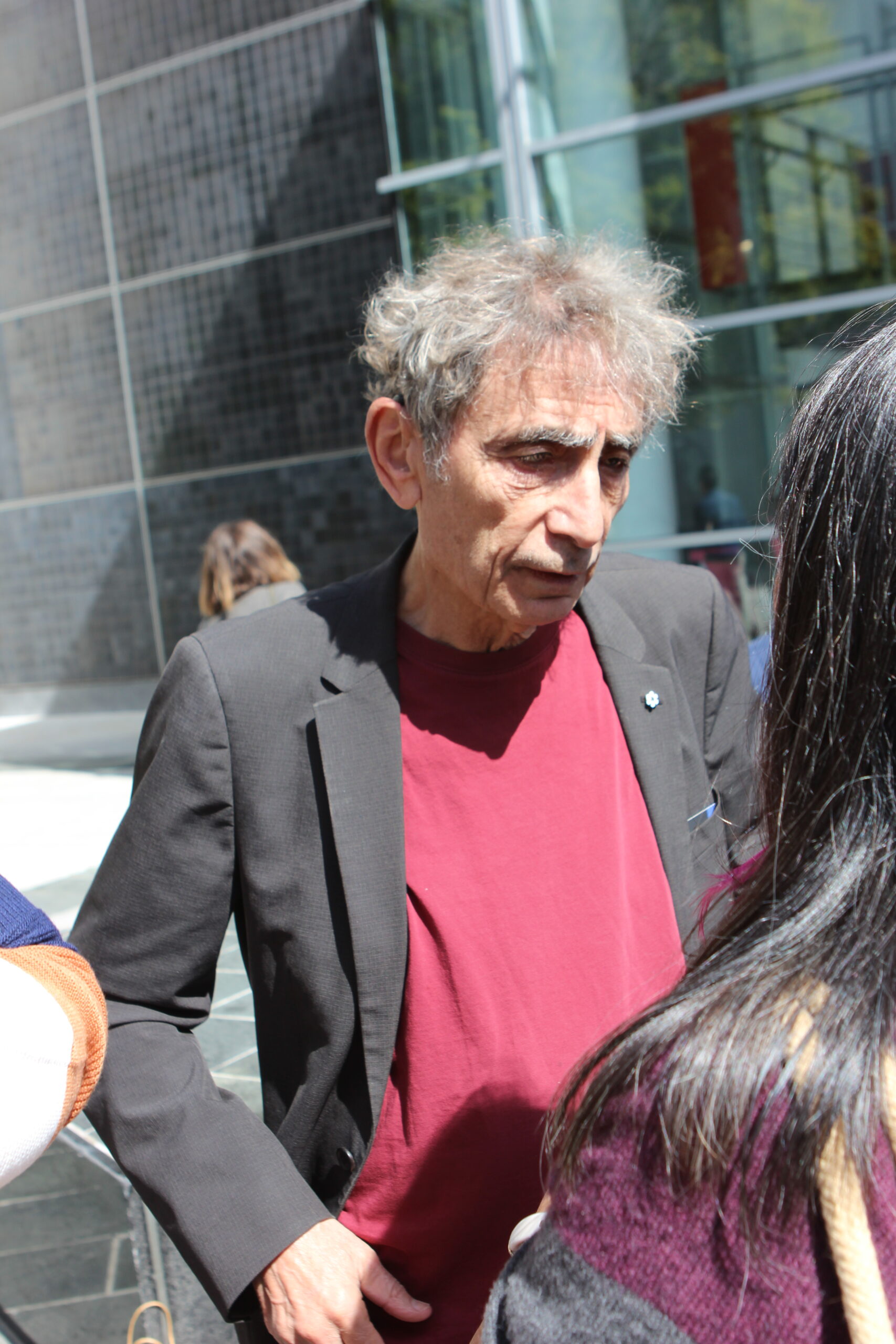
Dr. Gabor Mate chats with people outside
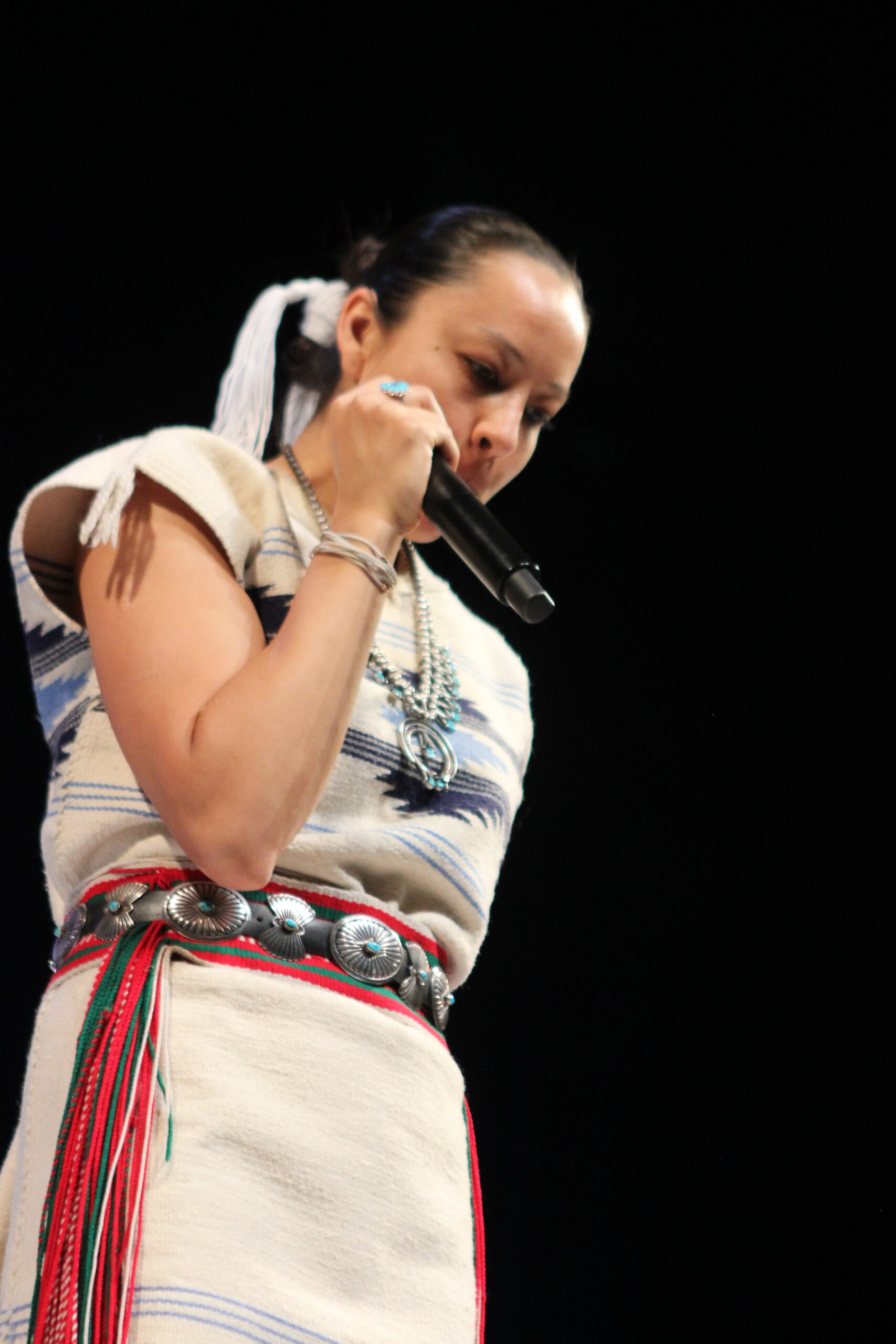
Lyla June Johnston
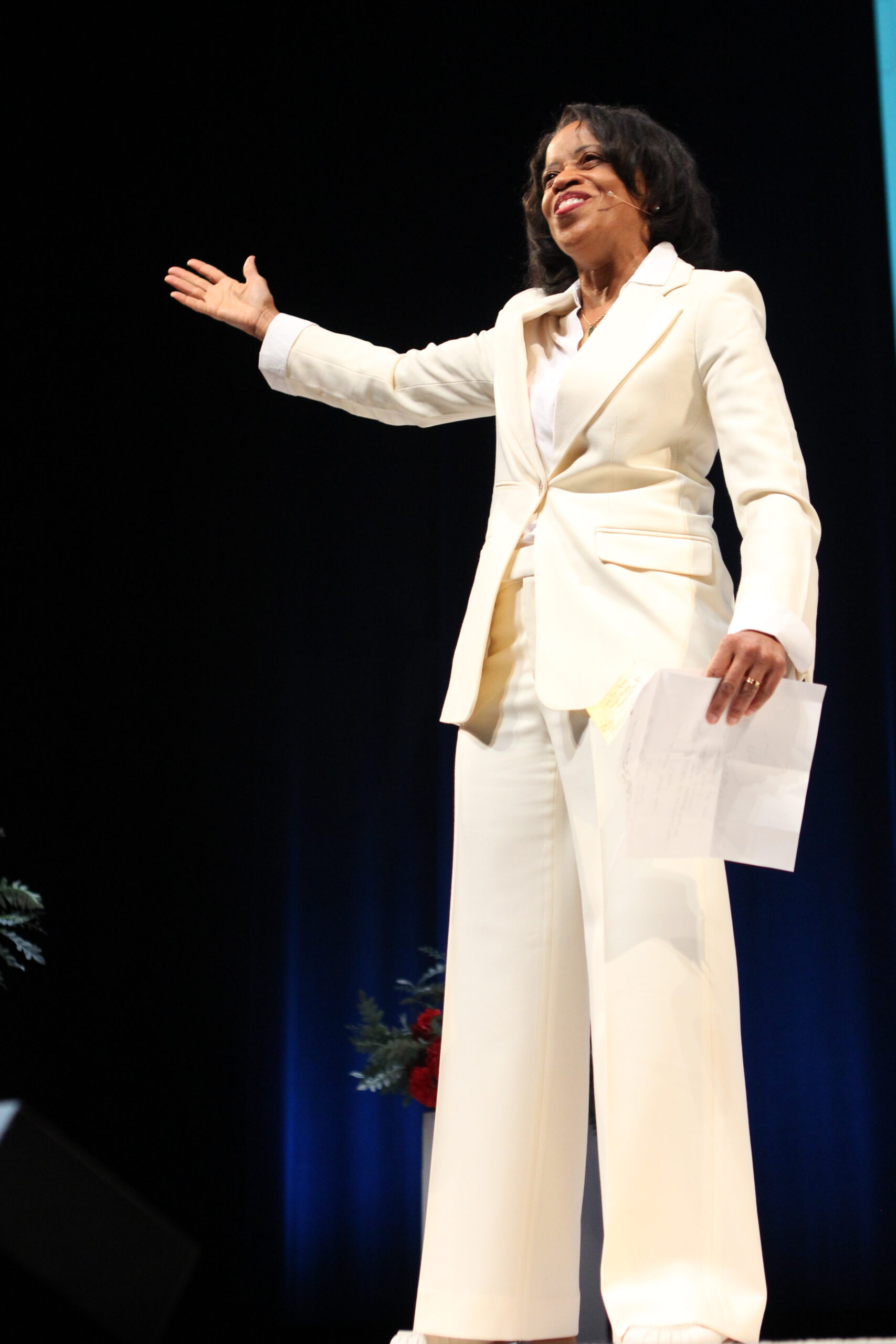
Rhonda Magee
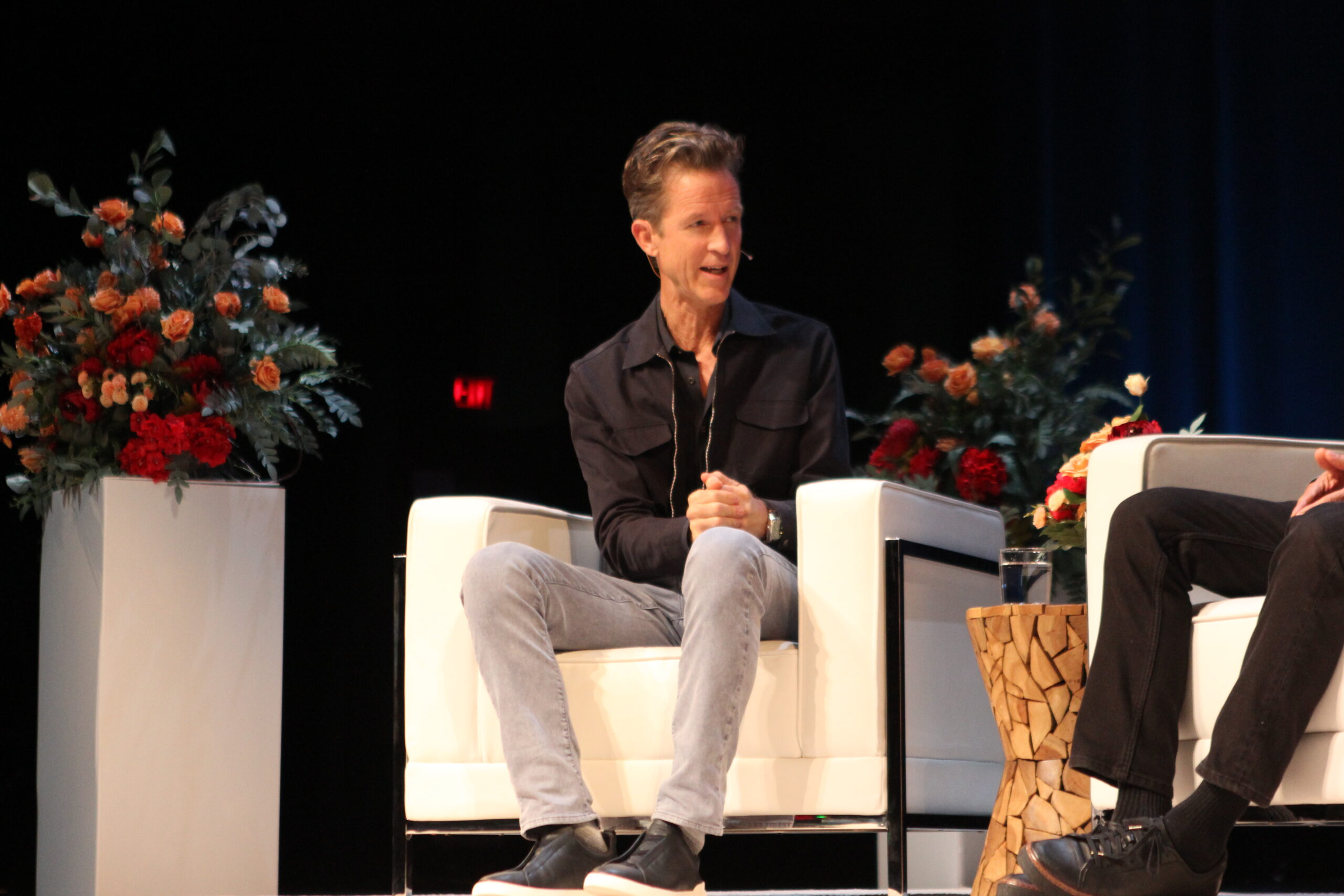
Soren Gordhamer
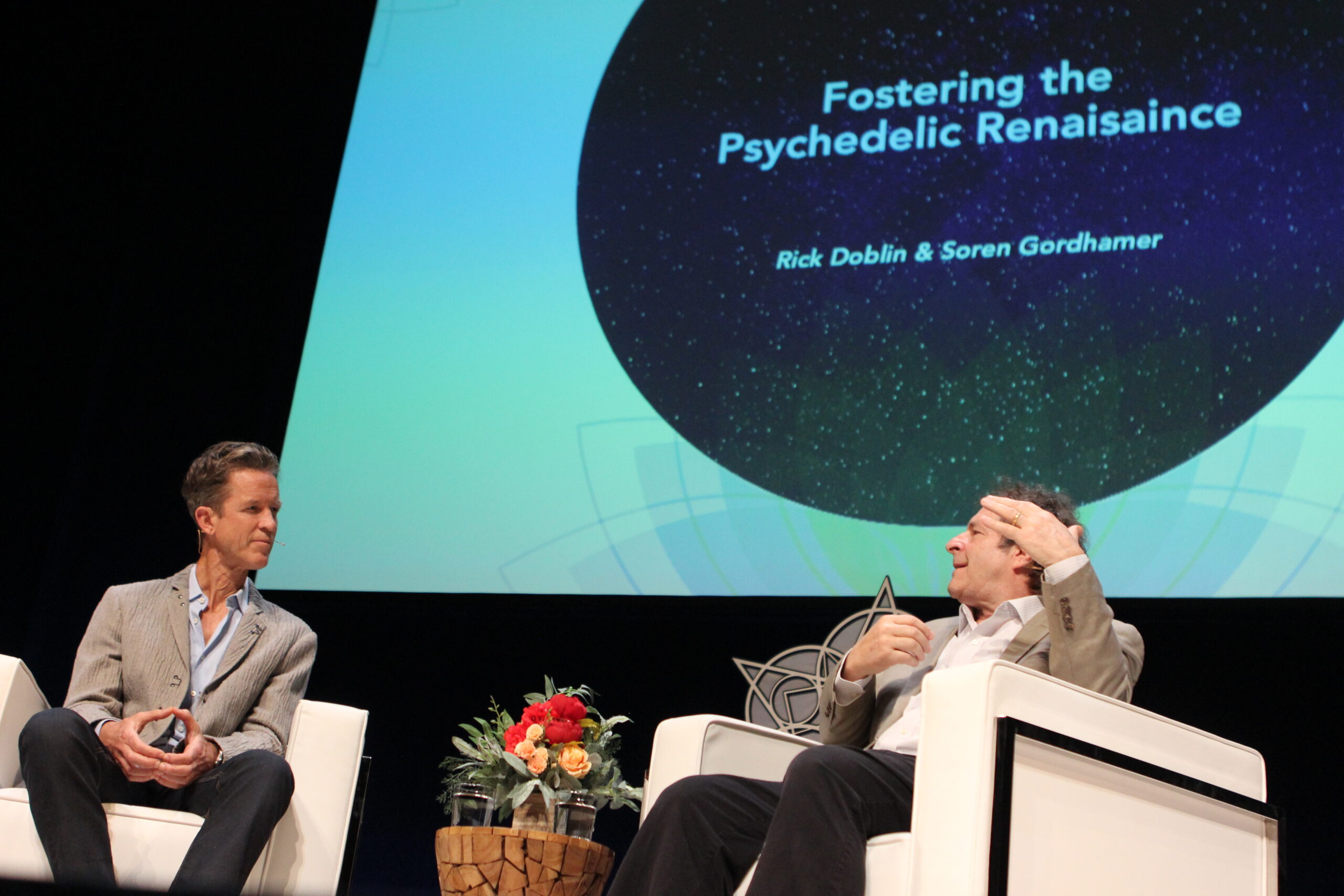
Soren Gordhamer with Rick Doblin
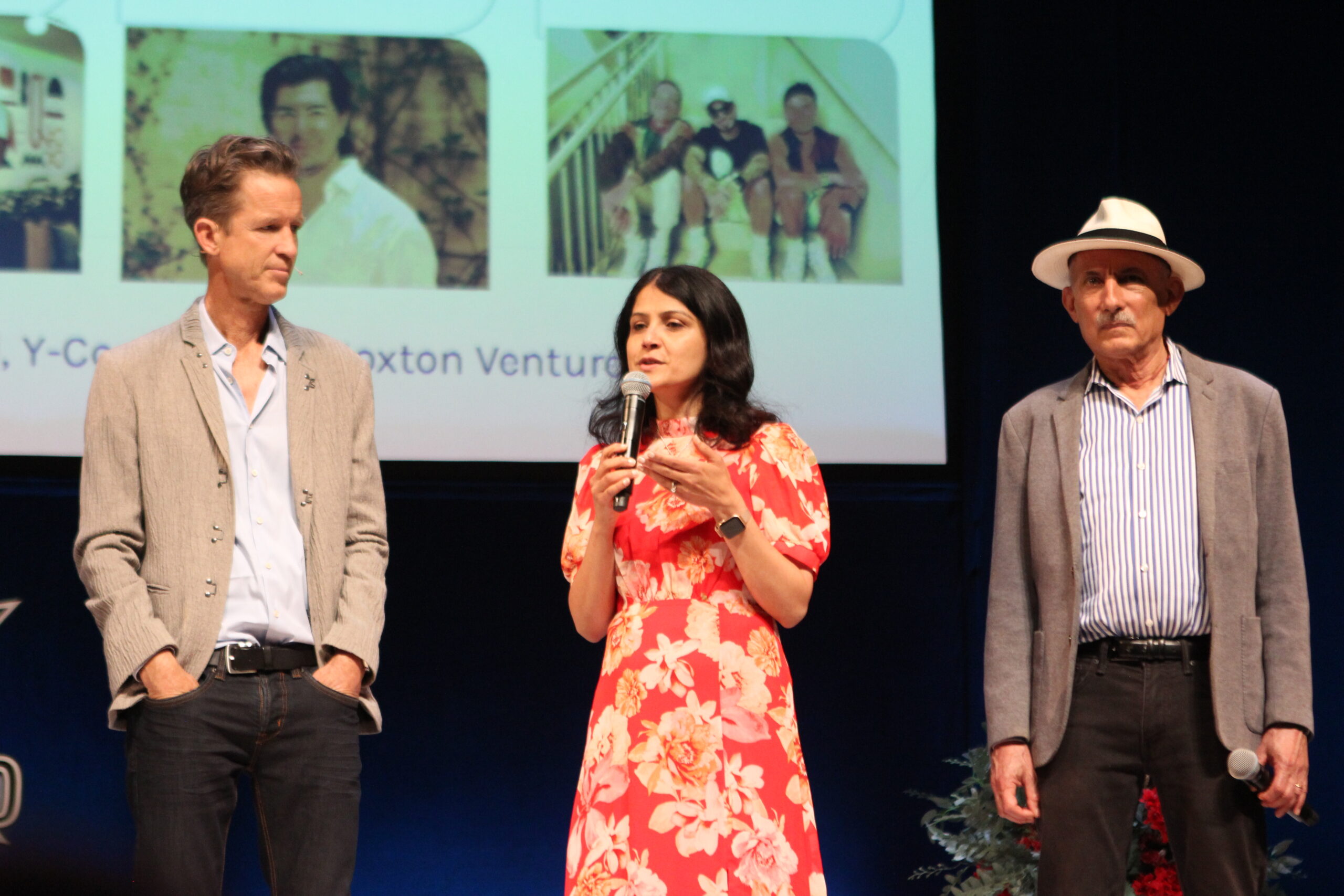
The Wisdom 2.0 team
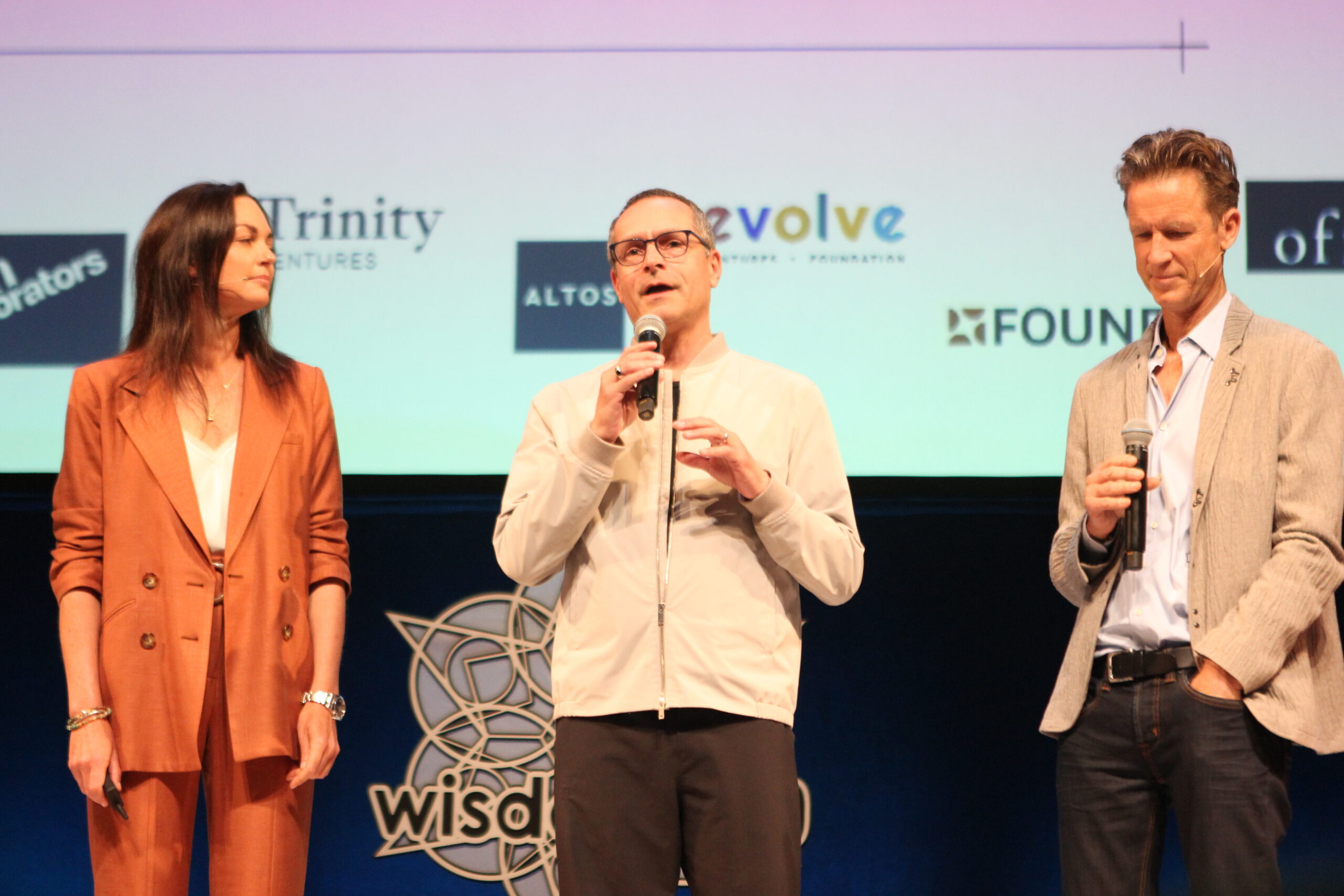
The Wisdom 2.0 team
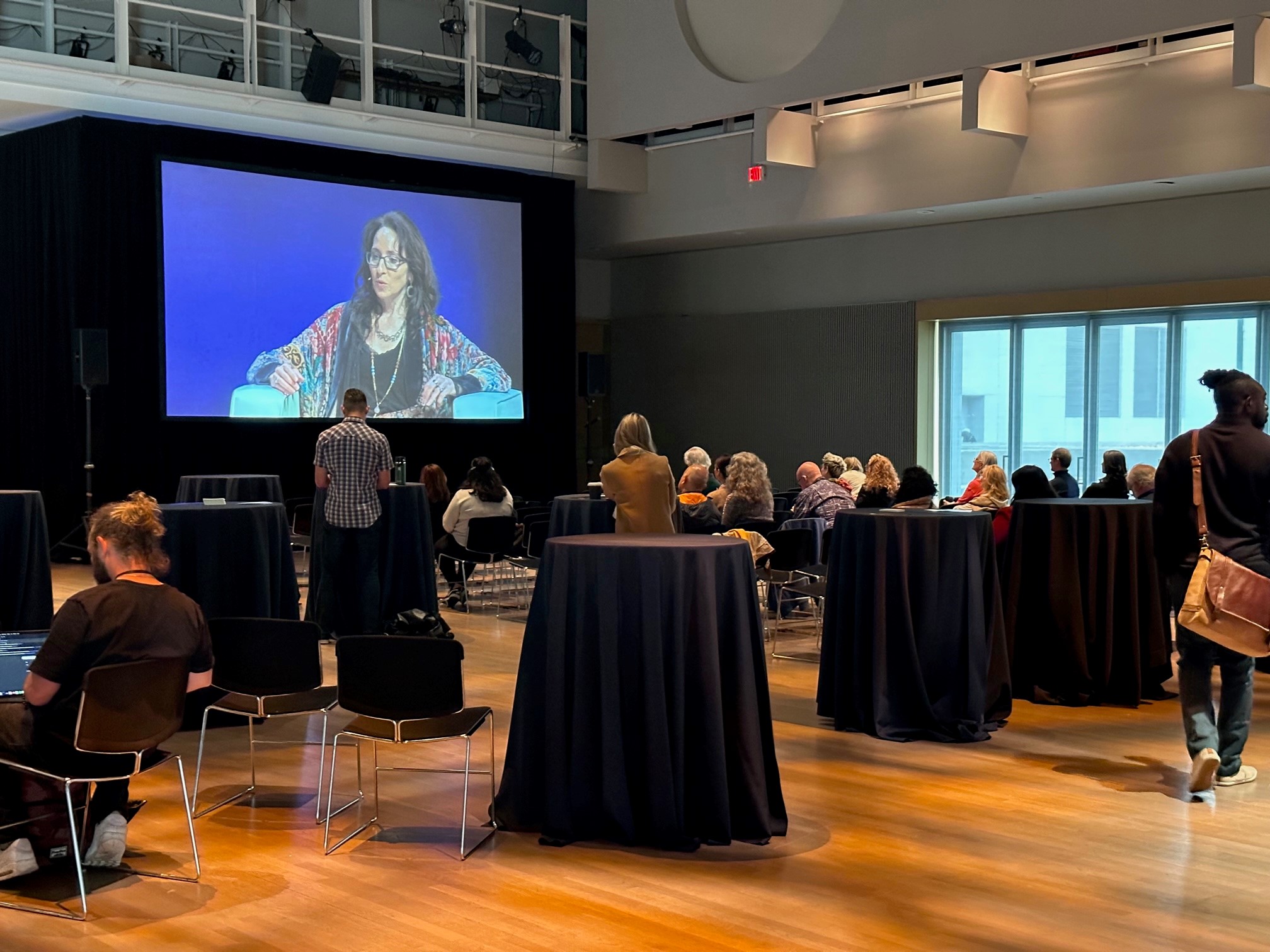
The lounge where people could sit, network and watch the main stage walks on screen.
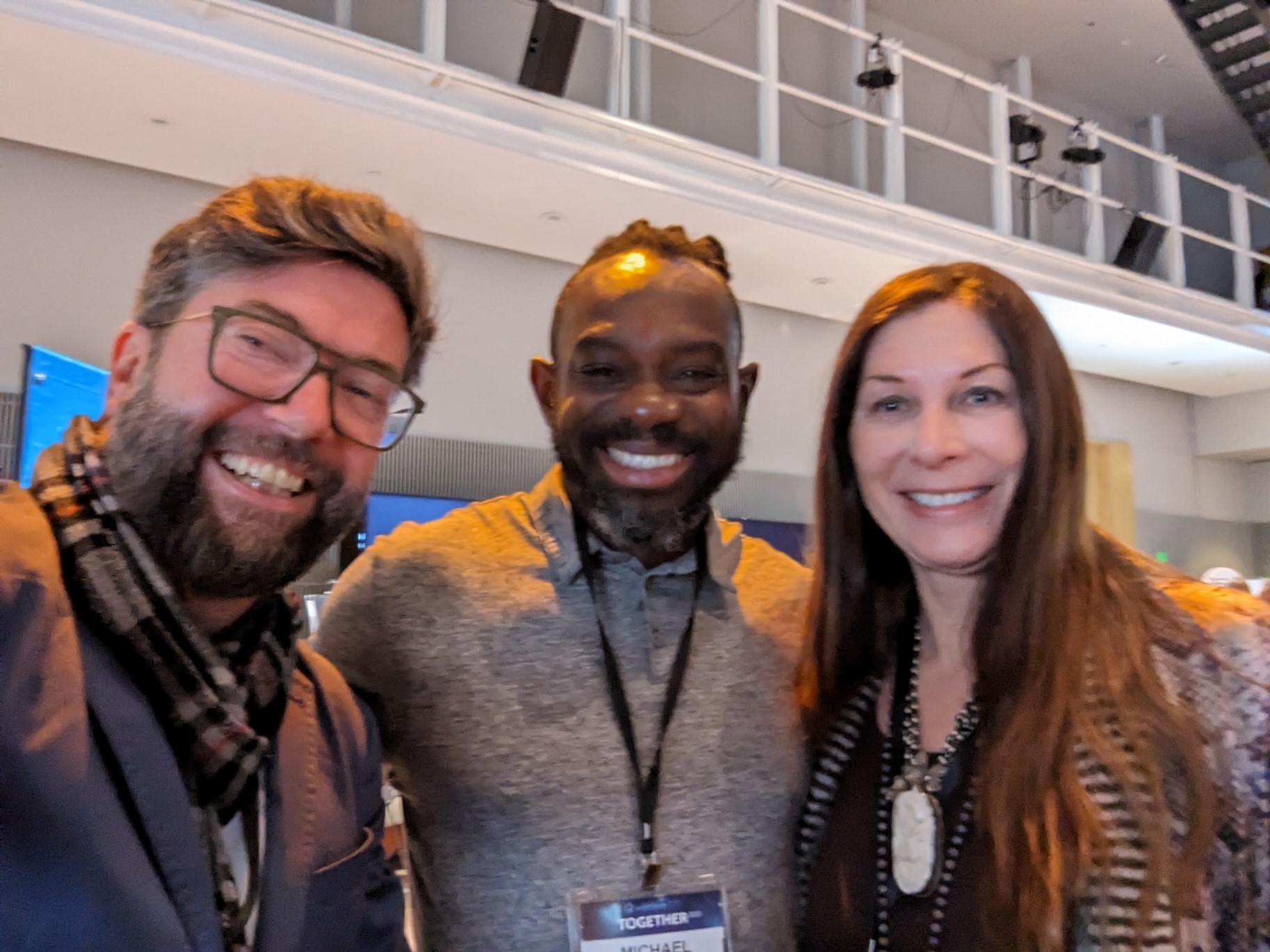
A l’il connection time

Other sitting areas to chat and connect
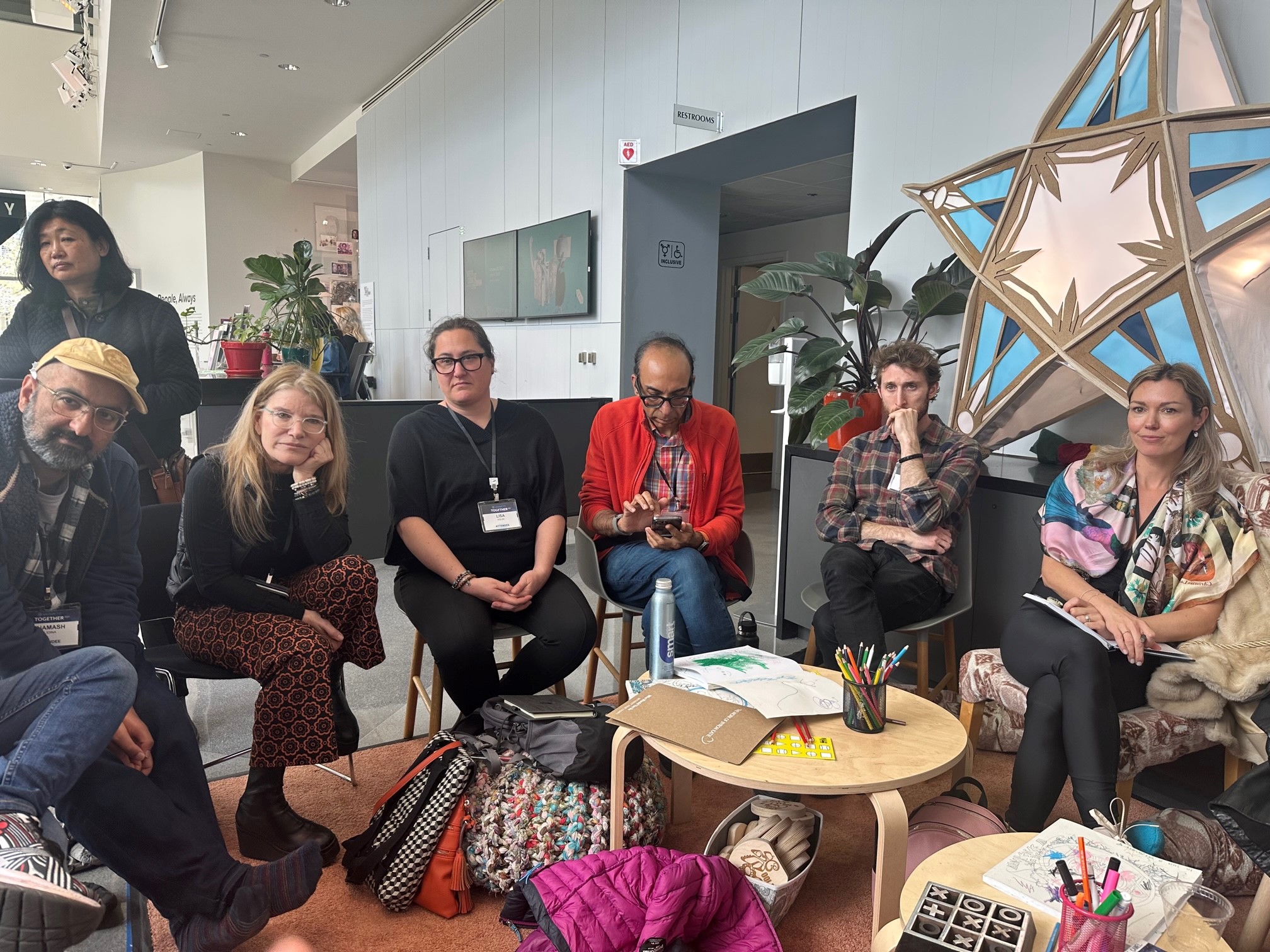
A breakout discussion on AI and where it’s headed.
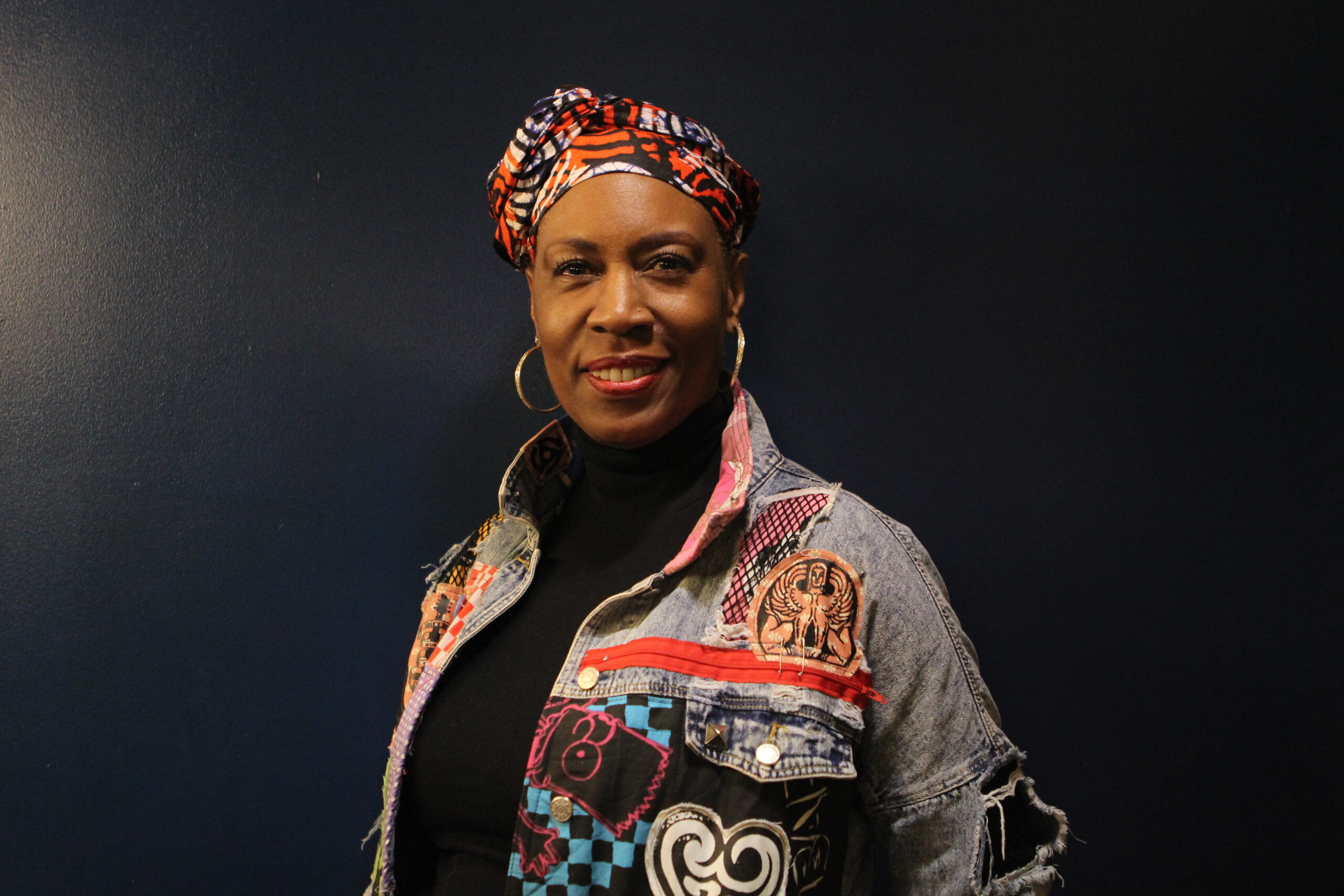
Jenee Johnson of Sankofa Therapy
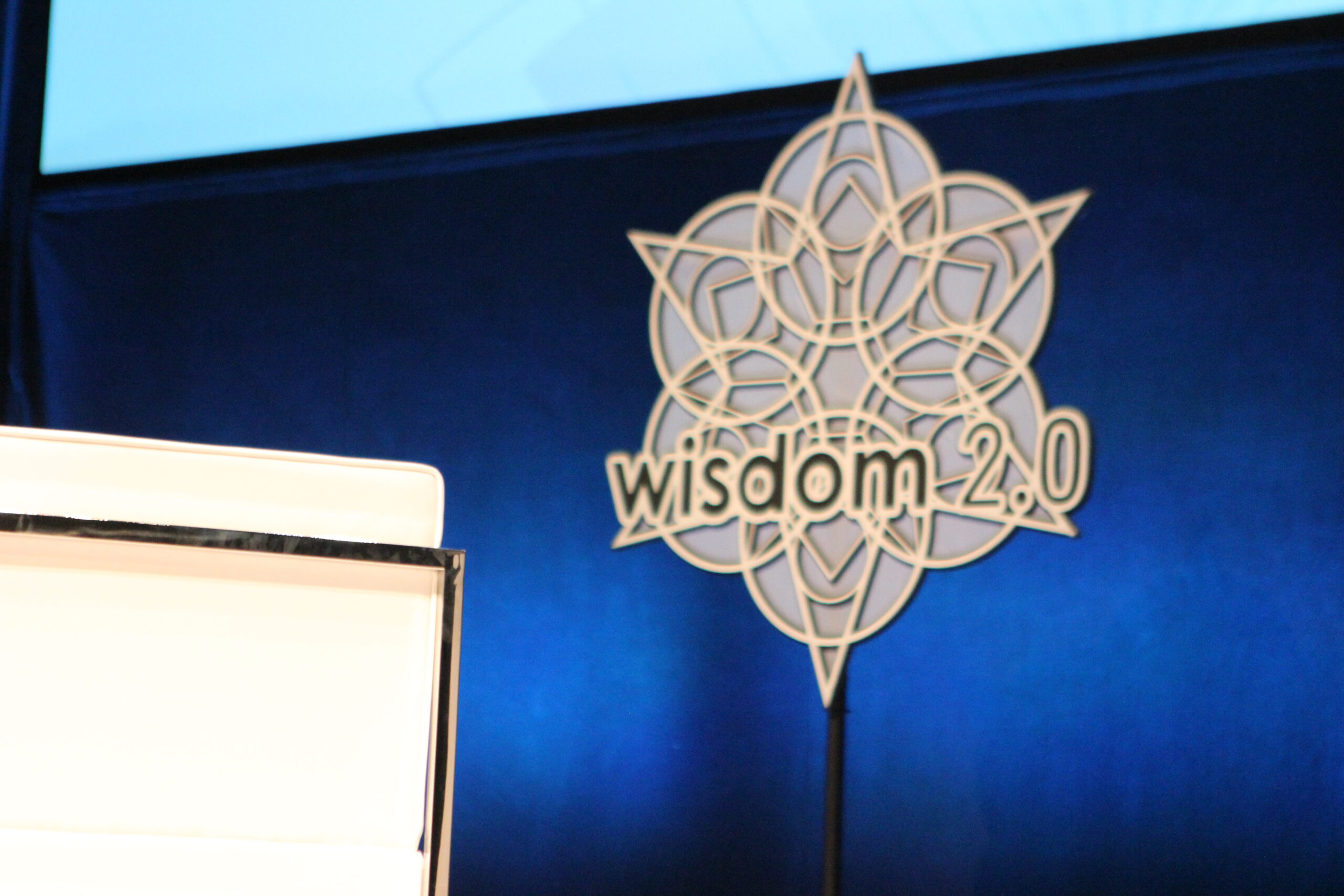
The main stage

At our Birds of a Feather dinner, we had a discussion about consciousness, weaving in the best from science and spirituality.
Watch a Highlight Video here to get a flavor for the event if you’ve never been, as well as our brief summary video below from this year’s event. We hope to see you next year.

Renee Blodgett is the founder of We Blog the World. The site combines the magic of an online culture and travel magazine with a global blog network and has contributors from every continent in the world. Having lived in 10 countries and explored over 90, she is an avid traveler, and a lover, observer and participant in cultural diversity. She is also the founder of the Magdalene Collection, a jewelry line dedicated to women’s unsung voices and stories, and the award-winning author of the bestselling book Magdalene’s Journey
She is founder of Blue Soul Media and co-founder of Blue Soul Earth as well as the producer and host of the award-winning Blue Soul CHATS podcast, that bridges science, technology and spirituality. Renee also founded Magic Sauce Media, a new media services consultancy focused on viral marketing, social media, branding, events and PR. For over 20 years, she has helped companies from 12 countries get traction in the market. Known for her global and organic approach to product and corporate launches, Renee practices what she pitches and as an active user of social media, she helps clients navigate digital waters from around the world. Renee has been blogging for over 16 years and regularly writes on her personal blog Down the Avenue, Huffington Post, BlogHer, We Blog the World and other sites. She was ranked #12 Social Media Influencer by Forbes Magazine and is listed as a new media influencer and game changer on various sites and books on the new media revolution. In 2013, she was listed as the 6th most influential woman in social media by Forbes Magazine on a Top 20 List.
Her passion for art, storytelling and photography led to the launch of Magic Sauce Photography, which is a visual extension of her writing, the result of which has led to producing six photo books: Galapagos Islands, London, South Africa, Rome, Urbanization and Ecuador.
Renee is also the co-founder of Traveling Geeks, an initiative that brings entrepreneurs, thought leaders, bloggers, creators, curators and influencers to other countries to share and learn from peers, governments, corporations, and the general public in order to educate, share, evaluate, and promote innovative technologies.








